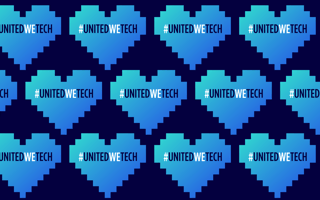In a world where lockdowns and shelter-in-place orders restrict physical movement, digital technology is filling the void to keep households connected, supplied, entertained and informed.
But amid the increased demand for digital products and services — and the logistical challenges associated with a massive work-from-home transition — many tech companies have not forgotten those who are struggling right now. We asked leaders at 100 startups and larger tech companies across the United States to describe how they’re giving back to their local communities dvuring this uncertain season, and the responses offer a fine example of our industry’s wealth of ingenuity.
There are many ways in which successful businesses can offer support when society needs it. Among the responses listed here, we find data science companies offering their services to health organizations, fintech startups helping small businesses navigate the federal stimulus package and wellness apps helping doctors and nurses on the pandemic’s front lines look after their own mental health. Meanwhile, other companies are supporting food banks, replacing school lunches and donating personal protective equipment.
Do you know of a team or company that’s going above and beyond right now? Share the love using #UnitedWeTech.
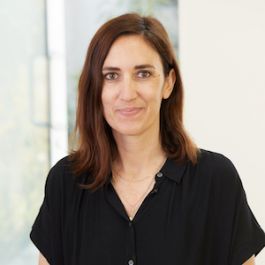
Kristin De Simone, Mission Manager at Thrive Market
How is your team giving back to the local community right now?
For more than a month now, Thrive Market has been focused on one thing: getting our members the products they need to keep their families safe and healthy during this unprecedented time. The coronavirus crisis has entered an even more serious phase over the last two weeks. Millions of families are facing mounting hardships, from lost wages to unforeseen childcare needs to potentially crippling medical expenses.
On March 16, we launched the Thrive Market COVID-19 Relief Fund and are providing grocery stipends and free Thrive Market memberships to any family facing health or financial hardships due to COVID-19. In just two weeks, our member community has raised over $80,000 through donations at checkout. Our plan is to match those donations, dollar for dollar, up to a total donation of $200,000. We’ve currently deployed over $180,000 in grocery stipends for those in need.
How have you adapted, expanded or changed your charitable giving initiatives in light of recent events?
The COVID-19 relief initiative is not uncharted territory for us. Since 2015, we’ve donated every dollar collected at checkout each month to the shopping budgets of Thrive Gives members, disaster relief efforts, food access and veteran aid programs and a range of fully vetted partner organizations that align with our mission.
Over the last few years, we’ve mobilized our member community for similar relief efforts including hurricanes Katrina, Michael and Florence and wildfires in California, the Amazon and Australia. We also supported those impacted by last year’s government shutdown and donated to migrant relief efforts at the U.S. border. At this point, we’re able to turn these types of campaigns around and activate our community really quickly.
Time and time again, our members have stepped up in a huge way. This time is no different. Their generosity continues to inspire us, and together we’ve already been able to support over 1,000 families in need during this really challenging time.

Natan Linder, CEO at Tulip
In what ways is your team giving back to the local community right now?
At this critical moment, we’re offering our software and services for free to all manufacturers contributing to the fight against COVID-19. We believe Tulip can be instrumental in ramping up production, bringing new therapies to market and helping manufacturers retool their production lines to build products that help fight COVID-19. We’re also building and sharing free applications that can be used by hospitals and factories on the frontline, such as an app that screens visitors and employees for symptoms and displays their travel history. Finally, we’re working with nonprofits in the open-source manufacturing community and providing Tulip for free as the information system for distributed production and supply chain logistics.
How have you adapted, expanded or changed your charitable giving initiatives in light of recent events?
We immediately saw that the manufacturing community — our customers — would have a critical role to play in the fight against COVID-19. Our greatest gift right now is how we can provide free and fast support, so we rapidly refocused our resources, energy and time to help the manufacturing community. We’ve been working overtime to help deploy our software to companies and organizations across the United States, and I’m proud to say that Tulip is helping manufacturers build and deliver essential medical supplies like masks to communities from Seattle to Boston.
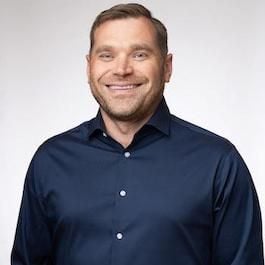
Matt Kalish, North American President at DraftKings
How is your team giving back to the local community right now?
DraftKings started a charity initiative called #DKRally to mobilize sports fans everywhere to band together in support of our communities during this global public health emergency. In the spirit of triumphing over adversity, the #DKRally initiative has committed up to $1 million to United Way, with an initial donation of $500,000. For every rally cap photo and hashtag shared on social media, DraftKings is donating $1 to United Way’s COVID-19 relief fund.
How have you adapted, expanded or changed your charitable giving initiatives in light of recent events?
We remain committed to our primary corporate social responsibility initiative, Tech for Heroes, which provides military veterans and their spouses with the high-tech skills they need to begin a new career path in tech or up-skill in their current role. In 2019, the company committed nearly $1 million to support the veteran community and other organizations, but given the current circumstances, it was important to be responsive to the immediate needs facing our country and communities. Working with incredible organizations like United Way allows DraftKings to diversify and complement the way we engage with the communities we are a part of, as we are always in search of ways to be a strong corporate citizen.
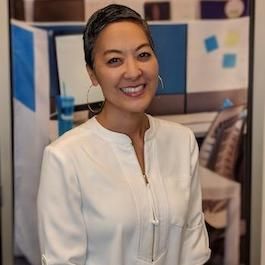
Stacey Kraft, Chief People Officer at Enova
In what ways is your team giving back to the local community right now?
As a Chicago company, we believe it’s important to support organizations helping with COVID-19 relief efforts where our team members work and live. Enova will contribute a total of $500,000 to the Chicago Community COVID-19 Response Fund and the Chicago Small Business Resiliency Fund. These funds are doing critical work to help ensure our neighbors most impacted by COVID-19 have the resources they need to get through this crisis.
How have you adapted, expanded or changed your charitable giving initiatives in light of recent events?
Now, more than ever, we want to help our team members make an impact by supporting causes they care about. That’s why Enova is expanding its “You Decide, Enova Gives” program. Based on nominations from Enova team members and a companywide vote, Enova will make a $10,000 donation to two organizations providing COVID-19 relief.
We’re also encouraging team members to make use of our charitable match program, which matches employee donations up to $250.
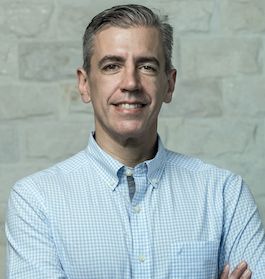
Eugenio Pace, CEO and Co-Founder at Auth0
In what ways is your team giving back to the local community right now?
We’re currently working with the Seattle Foundation and other community-based organizations to support local workers and families most affected by COVID-19. Because remote work is part of our DNA, we wanted to share best practices and have established a line of communication with our developer relations advocates for one-on-one video calls.
We’re continuing to look for ways to help organizations throughout this pandemic, specifically with authentication and authorization challenges. We are offering free tools for startups battling COVID-19 through our Auth0 Startup Relief program, including our workforce authentication solution, which is free until Aug. 31 and supports up to 500 users.
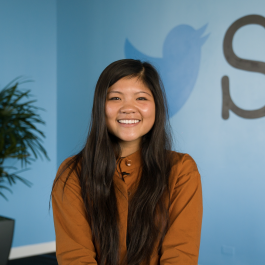
London Lee, Public Policy & Philanthropy at Twitter
In what ways is your team giving back to the local community right now?
In response to COVID-19, we are actively engaging our service, employees and corporate giving resources to support local communities. This includes contributing in-kind donations, launching employee giving campaigns and developing remote volunteer opportunities such as virtual mock interviews for local job seekers. Globally, we have also distributed pro bono advertising credits to help our partners launch meaningful campaigns around COVID-19 and announced a pledge of $1 million to the Committee to Protect Journalists and the International Women’s Media Foundation. We are committed to serving our communities year-round. Right now, we are working closely with our partners to understand and respond to the acute, ever-changing needs.

Neil Frye, Chief People Officer at Alto Pharmacy
In what ways is your team giving back to the local community right now?
As a member of the healthcare community, the team at Alto is leveraging our courier delivery fleet model to bring much-needed supplies to our colleagues working on the front lines. We launched a personal protective equipment (PPE) donation program in the San Francisco Bay Area last week and hope to expand it to other communities in the coming weeks. In just over one week of coordinating PPE donations to hospitals, we’ve run more than 60 individual donation pick-ups, accounting for more than 1,700 masks, 11,000 gloves and various other supplies.
How have you adapted, expanded or changed your charitable giving initiatives in light of recent events?
Alto is most successful when our communities are healthy, safe and thriving. We see this moment as a chance to connect our resources and operations infrastructure with problems worth solving — for example, connecting private supplies of PPE with healthcare organizations. We’ll continue to look and listen for other ways that we can help our colleagues in healthcare and the communities that we serve.
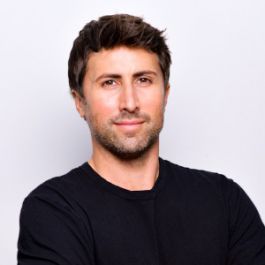
Jason Wilk, CEO at Dave Inc.
How is your team giving back to the local community right now?
We’re in an unprecedented time that has created so many challenges, leading us to create new ways to help our customers and the broader community in Los Angeles and beyond. We have adapted our “side hustle” feature — which connects people with jobs — to include more jobs that can be done from home like Swagbucks and SurveyJunkie. Between March 15 and 29, 70,000 Dave customers turned to the feature for remote work opportunities, 30,000 of which are based in Los Angeles.
Additionally, Dave has donated $250,000 to Feeding America’s COVID-19 Response Fund, which will help to address hunger caused by the pandemic at Los Angeles food banks and across the country.
How have you adapted, expanded or changed your charitable giving initiatives in light of recent events?
COVID-19 has caused many Americans to lose their source of income. Coupled with the closures of most schools — which many children rely on for regular meals — Feeding America expects food insecurity to rise in the coming weeks. To address these concerns for Dave’s customers and the broader U.S. community, Dave is expanding its existing partnership with Feeding America through its donation to their COVID-19 Fund.
This is a continuation of Dave’s ongoing relationship with Feeding America, which provides a “meal match” where Dave donates a meal to Feeding America in return for certain actions within the app, such as referring a friend.
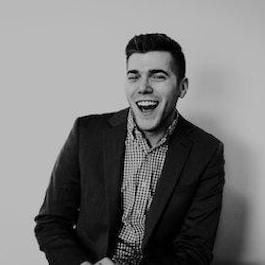
Dan Van De Voorde, Director of People at Strata Decision Technology
In what ways is your team giving back to the local community right now?
Strata is on a mission to help heal healthcare. Helping solve food insecurity has always been a cause we care deeply about, as it has a direct impact on the health and wellness of our communities. Our team is rallying around one of our partners, the Greater Chicago Food Depository, with a virtual food drive to bring meals to our neighbors in need during these uncertain times. On a typical day, 1 in 5 people in Chicago do not know where their next meal is coming from. Layer in these extraordinary circumstances, and families across our city are in desperate need of help.
How have you adapted, expanded or changed your charitable giving initiatives in light of recent events?
Normally, we would head on over to the GCFD headquarters to repack food or host a drive in our office. Today, we are fortunate enough to take those efforts virtual. Our team can shop online for what they’d like to donate and together, we will deliver 100,000 meals to those who need it most. Additionally, in an effort to support the communities our customers serve across the country, Strata has made a contribution to Feeding America, the national organization that works with local food banks to provide meals to those in need all over the United States.
On the healthcare front, Strata has contributed to the World Health Organization and the American Red Cross to support their response efforts to keep our communities safe around the world.

Jessica Chang, CEO and Co-Founder at WeeCare
In what ways is your team giving back to the local community right now?
WeeCare is supporting the community by assisting families in finding a temporary childcare solution in a “Fever-Free” WeeCare home daycare, 24 hours a day, seven days a week. WeeCare is offering essential workers full access to WeeCare’s team of childcare experts, who are removing parents’ stress in finding childcare and quickly placing their child in a WeeCare home daycare.
We are also collaborating with local government agencies and allowing them to utilize WeeCare technology to streamline the process of finding childcare by giving them access to a childcare provider’s availability in real time. Additionally, we have developed several features for home daycare providers to create a safer environment for the families they are serving, such as a process to verify their home daycare is fever-free and implementing virtual daycare tours and daily health checks.
How have you adapted, expanded or changed your charitable giving initiatives in light of recent events?
Currently, we are finding childcare for essential workers at no cost. If we cannot find them a spot in a WeeCare home daycare, we will proactively locate a daycare outside of our network that has availability and can accommodate their child. Childcare providers who are not part of our network can now join the WeeCare platform at no cost to their current families and take advantage of our upgraded features, which includes access to our educational program. Finally, we are working around the clock and offering 24/7 support to ensure we can quickly service both families and providers.
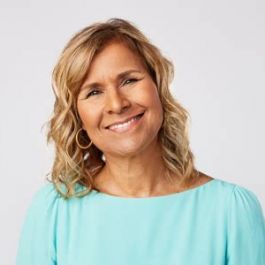
Janis Hoyt, Chief People Officer at The Honest Company
In what ways is your team giving back to the local community right now?
As our community continues to be affected by COVID-19, many families are left without access to their everyday basic essentials. To meet families’ immediate needs, Honest has committed to donating 3 million diapers, 30,000 packs of wipes and 20,000 personal care products this year to our charity partner, Baby2Baby — with 100,000 diapers and 100,000 wipes immediately delivered in March. These essential items are being distributed throughout family resource centers, homeless shelters, health clinics and Head Start centers to families impacted by this outbreak. In addition, Honest is matching employees’ donations — up to $500 per person — toward the nonprofit of their choice.
How have you adapted, expanded or changed your charitable giving initiatives in light of recent events?
We are continually assessing the short-term and long-term effects that COVID-19 will have on our community and the subsequent needs of our charity partners. Our increased charitable giving commitments not only reflect what we can do right now but also how we will continue our support throughout the year.
In addition, we are exploring ways to connect our consumer base to our charity partners to help us amplify our giving initiatives. This year, we will continue to focus our efforts to ensure we are leading with compassion, serving as a reliable resource for our charity partner, Baby2Baby, and making a difference in the Los Angeles community.

Joel Milne, CEO at RepairSmith
How is your team giving back to the local community right now?
Our team at RepairSmith is rallying to support the communities we serve in a big way. We’re donating $100,000 in free “no-contact car repair” to people who lost their jobs due to the coronavirus pandemic and those on the front lines, like government workers, service workers, delivery drivers, healthcare professionals, employees of grocery stores and pharmacies and volunteers. We believe it’s simply the right thing to do to help relieve financial burden for the heroes and victims of the pandemic — and to help essential workers get where they need to go safely.
How have you adapted, expanded or changed your charitable giving initiatives in light of recent events?
Giving back is something we’ve been passionate about since RepairSmith was founded. When we began to see the need for community support on all fronts in the face of the coronavirus pandemic, we knew we had to step in to help. While we could have never truly planned for this program given how quickly the outbreak intensified, our team did an incredible job of conceptualizing the initiative and mobilizing to make it happen in just a matter of days.
This is RepairSmith’s largest philanthropic initiative to date and one that has already begun to make a meaningful impact on the community. We have been inundated with applications since launching the program in late March and plan to support hundreds of deserving neighbors over the next few months.

Frances Cooperman, Chief Marketing Officer at Via
In what ways is your team giving back to the local community right now?
We’ve quickly adapted our technology and are leaning on our operational expertise to help provide innovative transportation solutions for essential workers and for the delivery of goods and services. Right now, communities have an urgent need to transport essential employees — healthcare, government and delivery workers — to and from work in the safest and quickest way possible. We’re working with partners to adapt their existing transit infrastructure to meet the needs of their communities in this critical moment, whether that’s getting medical workers to hospitals faster and more safely or helping to efficiently deliver essential goods like groceries and prescriptions.
For example in Germany, Via has an existing collaboration with Berlin’s transit agency, BVG, and runs the largest public sector on-demand transit deployment in the world. In response to COVID-19, we’ve extended our operating zones even farther into the city, covering more than 10 hospitals, in order to provide a fully free, dynamic service for essential healthcare workers.
In Malta, as in other places around the world, social distancing has led to challenges in accessing food, medicine and other essential services. Working with our local partners, we’ve adapted our existing service to allow grocery stores to send goods through our app. Locally, we know New Yorkers rely on Via for affordable transportation, and while shared rides are paused to keep everyone safe, we’ve discounted private rides by 20 percent to help those who do need to travel.

Rich Pierson, Co-Founder & CEO at Headspace
How is your team giving back to the local community right now?
We’re taking several steps to help, including providing free Headspace subscriptions to U.S. healthcare providers working in public health settings through 2020. Our healthcare system is facing immense pressure amid the COVID-19 outbreak, and we’re seeing incredible stress, anxiety and burnout among healthcare workers who are on the front lines of this crisis. While this is currently only accessible to U.S.-based healthcare providers and employees of the NHS in the U.K., we’re working with global NGOs, health systems and government officials to quickly establish ways to uniquely identify healthcare providers in countries around the world.
We’re unlocking a free, specially-curated “weathering the storm” collection of meditation and mindfulness content in the Headspace app for everyone around the world and sharing our “Headspace for Work” tools and resources. As experts in workplace mental health, we understand the profound and lasting impact this global health crisis has had on employees and their families everywhere. We also know the impact on teachers and caregivers in light of school closures and social distancing measures. Headspace offers free access to K-12 teachers, school administrators and supporting staff in the U.S., U.K., Canada and Australia. And to help guide students and their parents through this tough time, we’re also sharing tools and tips for talking mindfully with young people to help educators guide kids and their parents through this public health crisis. “Headspace for Educators” is our flagship social impact program that has been in place since 2018 and will be here to support educators indefinitely.
This is our small way of helping people around the world find some calm and compassion for themselves and those around them in a truly trying time. The most significant benefit of meditation is its ability to help you rest in uncertainty. Of course, our lives are always uncertain, and it’s at times like these when we feel it more than ever. We hope these small gestures can help all of us look after the health and happiness of our minds as well as the people around us.
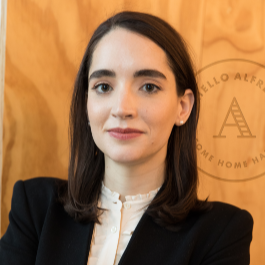
Marcela Sapone, Co-Founder & CEO at Hello Alfred
In what ways is your team giving back to the local community right now?
Even under normal conditions, supporting local businesses is a big focus for us. We’ve always made a point to partner with local grocers, dry cleaners and retailers to fulfill our customers’ requests, but now we’re taking even more care to prioritize keeping purchasing power in the community. At a time when people are outsourcing food and supplies orders to big-box online retailers, our team is supporting local stores and service providers by shopping for groceries, supplies, medication and even liquor at home, in our own neighborhoods. The Amazons and Instacarts of the world will survive this, but the bodegas and local shops won’t without our continued support.
How have you adapted, expanded or changed your charitable giving initiatives in light of recent events?
We quickly established the Alfred Local Workers Assistance Fund to benefit impacted members of the workforce who are struggling to make ends meet, whether they’ve suffered layoffs, reduced hours or closures. We’ve increased our service fee by 1.5 percent in direct support and are waiving the cost of service for all new members in favor of a $25 weekly donation to the fund instead. We’ve also invited our partners as well as our own team to contribute. Our team members are all W-2, fully insured workers, but we realize that many others in our communities are not so fortunate. We’ve always championed the power of human help, and when could our support be more important than right now?

Eric Carroll-Stonehewer, Talent Acquisition Partner at Castor
In what ways is your team giving back to the local community right now?
As a leading medical research tool, it turns out we can do a lot right now, and, frankly, we have a moral obligation to do so. With that being said, Castor has joined the global fight against the coronavirus by making our research data capture system available for free to all COVID-19 research projects. As of March 23, more than 60 COVID-19 research projects are now running on Castor. We have also developed ready-to-use eCRFs — electronic case report forms — based on the World Health Organization standard CRFs to help researchers start their study or registry in less than an hour.
How have you adapted, expanded or changed your charitable giving initiatives in light of recent events?
Very recently, Castor decided to join the climate change fight. Why? Because the number one issue on the WHO’s list of threats to global health is air pollution and climate change. Castor will be planting 10 trees for each study that goes live on our platform, whether it is a paid or free study. With recent events in mind, we have also used the full force of our talented in-house product and engineering teams to develop an app that supports COVID-19 research.
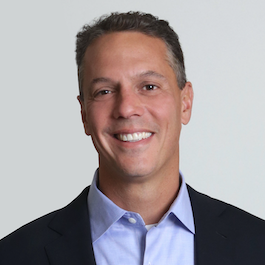
Adam Miller, Founder and CEO at Cornerstone OnDemand
In what ways is your team giving back to the local community right now?
I’ve been working closely with the founders and CEOs from several of LA’s homegrown tech companies to launch LA-Tech.org, a non-profit coalition run entirely by local tech CEOs from Blackline, Factual, Zefr, HopSkipDrive, Comparably, Thrive Market and ServiceTitan. Our goal is to give back to the community that has allowed us to grow and become successful by applying the power and compassion of the LA tech community to the challenges facing our city’s most vulnerable populations. By investing in our local talent through partnerships with some of LA’s most impactful community organizations, we can expand economic opportunity and ensure the diverse and vibrant future of our growing tech sector.
How have you adapted, expanded or changed your charitable giving initiatives in light of recent events?
In light of COVID-19, one of LA-Tech.org’s first major initiatives was to create #StepUpForLA, a fundraiser to provide rapid relief to our fellow Angelenos by stepping up in two ways: to feed 1,000 of our food-insecure neighbors and to reconnect 1,000 foster youth to their education by gifting them laptops. We have an aggressive goal to raise $415,000 in the next few weeks and have invited the LA community to contribute to the cause.
Dozens of tech companies have stepped up to join us, and myself and LA-Tech.org Co-Founder Therese Tucker, CEO of Blackline, have agreed to match all incoming donations. We invite all of our partners, colleagues, competitors and friends to come together and do what the tech community does best: lead the way to improving people’s lives.
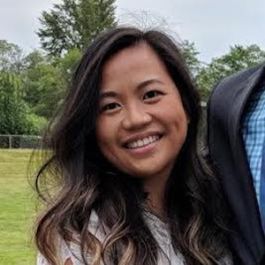
Sara Itucas, Co-Founder & COO at Legalpad
In what ways is your team giving back to the local community right now?
Innovation is integral to helping us survive this pandemic. Our team recognizes the role immigrants play in developing that culture of innovation, and since they comprise 19 percent of the front-line workforce, we can’t afford to turn our backs on them. With all the developments around immigration policy and travel restrictions, our team is determined to provide clarity, resources and an action plan for people in our international community. We’re providing free resources to our community, including updates on immigration and travel news alerts on our website and via email notifications, regular webinars and office hours about what new immigration policy updates mean, and consultations for people who need guidance on next steps regarding travel and immigration compliance during COVID-19.
We’ve also opened up a new visa service for permanent residency (the EB-2 green card) which will enable us to support a wider swathe of people. By doing this, we’re carving out more options for stability in immigration status. Many people don’t know that they can self-petition for certain green cards, and we are here to make that knowledge accessible for our community.
How have you adapted, expanded or changed your charitable giving initiatives in light of recent events?
Providing options, clarity and actionable next steps is the best way we can support our international community right now. We’re offering more of our services for free and educating immigrants on every possible path they have for stability in a time of uncertainty.
To all the immigrant entrepreneurs out there: We’re here for you so that you can better support others in what you do best. We need you now more than ever.

Michael Amori, Co-Founder & CEO at Virtualitics
In what ways is your team giving back to the local community right now?
Throughout this crisis, I’ve been amazed at how well our company has responded to unprecedented challenges. We’re fortunate to have a great team of Caltech-trained engineers and data scientists who are giving back to the community by analyzing data related to the coronavirus. Virtualitics is partnering with a large government entity and an LA-based hospital network to better prepare and plan for local outbreaks. Specifically, our team has developed AI-based predictive models that forecast short-term infections at a local level. We’re proud to be a part of this fight.
How have you adapted, expanded or changed your charitable giving initiatives in light of recent events?
The COVID-19 crisis has pushed our entire staff to think about how we could give back more during this time of need. One of my favorite initiatives is that we’ve been granting complimentary use of our flagship software, Virtualitics Immersive Platform, to users in the healthcare field working with coronavirus data. Through machine learning, our tool allows users to understand and visualize large amounts of data very rapidly. This empowers users to make better data-driven decisions faster, at a moment when time to insights is critical.

Vishwas Prabhakara, COO at Digit
In what ways is your team giving back to the local community right now?
Digit is doing everything we can to help people during this strange and difficult time. On March 26, we released a coronavirus relief hub, for members and non-members alike, with links to helpful and pertinent information on current employment opportunities and expanded unemployment benefits, paid and family sick leave, how to protect your home and utilities, how to manage debt and taxes and general acts of kindness to help people feel better. The hub also includes some helpful pointers on how to use Digit to protect and secure your finances by adjusting automatic savings levels, preventing overdrafts and keeping users generally informed on the state of their financial health. Digit has been updating the relief hub and plans to do so regularly to provide a single source for some of the most important updates, tools and resources people need during this tough time. The Digit team is working hard to expand how it is helping people weather the financial storm and will continue to share updates.

Emily Jansen, Director of Marketing at Pushnami
In what ways is your team giving back to the local community right now?
Every month, Pushnami donates a portion of our revenue to local nonprofits. Last week, we donated $10,000 to the Central Texas Food Bank, which will provide meals for up to 40,000 Central Texans. We've also made sure to maintain the memberships for our employee health & wellness perks (like our crossfit and yoga classes) even though many of these local businesses are closed.
We made our marketing platform 100 percent completely free for the next six months. Any online business — especially those based in Austin — is able to use our platform for free with no contracts or credit card required. Our product helps drive more connections and engagement, which is something we all could use a little more of right now.
How have you adapted, expanded or changed your charitable giving initiatives in light of recent events?
We've increased our charitable contribution program this month, most recently donating $10,000 to the Central Texas Food Bank. We've always focused on people-first organizations, and this month is no different.
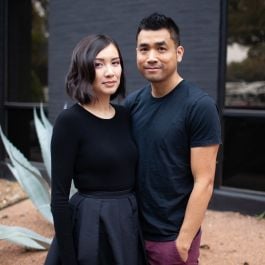
Brandy Pham, Founder & Chief Creative Officer at PLANOLY
In what ways is your team giving back to the local community right now?
To lend relief to the city we call home and its small business community that we hold dear, we’ve recently announced Designing Change, PLANOLY’s philanthropic initiative. We are launching it with the Local Love Grant – awarding two Austin-based small businesses $5,000 each to help relieve financial hardships due to COVID-19. The winners of the Local Love Grant will also receive a year’s worth of free PLANOLY and one-on-one mentoring sessions with a social marketing expert.
How have you adapted, expanded and changed your charitable giving initiatives in light of recent events?
We originally planned to announce our first small business grant for female and non-binary small business owners and entrepreneurs at SXSW this year. Since the change in events, our team quickly pivoted our grant to help local small businesses combat financial hardships due to COVID-19. Moreover, given the time-sensitivity that these citywide closures place on small businesses, we accelerated our Local Love Grant application and review process to reflect the urgency businesses are facing today.
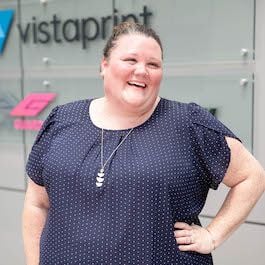
Erin Shea, North America Market Director at Vistaprint
In what ways is your team giving back to the local community right now?
Vistaprint rallied its engineering and manufacturing teams to optimize existing machinery to begin producing face shields in a matter of days. We’re showing our support for frontline healthcare providers by donating 100,000 face shields to hospitals in communities across the country. There are three recipient locations in the greater Boston area: Boston Children’s Hospital, St. Elizabeth Medical Center and the Dana Farber Cancer Institute. Western Massachusetts hospital Baystate Health, located in Springfield, also received a donation of 1,000 face shields.
Vistaprint is also the proud founding funder of the U.S. Chamber of Commerce Foundation’s Save Small Business Fund. Vistaprint’s donation of $1 million helped launch this small business assistance program, which provides one-time grants of $5,000 to eligible small businesses in distressed communities across the country.
As a marketing partner to millions of small business owners around the world — and right here in the Boston area —Vistaprint has created a growing bank of resources to support these entrepreneurs. These include a live online webinar series, free social design tools that allow small businesses to stand out on social platforms, Vistaprint Profiles that offer a free rapid path to getting an online presence for those without a website and low-cost design assistance to help small businesses bring everything together with a cohesive brand look and feel.
How have you adapted, expanded or changed your charitable giving initiatives in light of recent events?
Vistaprint has always been there as a partner for small businesses. Now more than ever, we’re doing all we can to help small businesses get through this difficult time and thrive in a post-pandemic world. We continue to adapt our offerings to better serve our small business customers.

Matthew Gee, CEO at BrightHive
In what ways is your team giving back to the local community right now?
We decided the best way we could help not only local communities, but cities and states across the U.S., was to assemble a group of data superfriends — the COVID-19 Data Response Team — to provide pro bono services for responsible data sharing and essential help to fill gaps in critical digital infrastructure. The Data Response Team is helping cities and states across the country publish real-time updates on thousands of open child care centers for critical care providers. We’re helping states provide real-time information on which industries and occupations are hit the hardest by layoffs and where the out of work can find new work now, and we’re helping medical apps responsibly share COVID-19 treatment data with researchers who are searching for effective treatments.
How have you adapted, expanded or changed your charitable giving initiatives in light of recent events?
BrightHive staff are devoting a portion of our time and energy during workdays and after hours to serving others in our own nerdy way throughout this crisis. We aren’t charging for this. Government, social service and nonprofit organizations get technical resources and pro bono services to help them create a Data Trust Agreement that allows them to responsibly and effectively share data with one another to better coordinate their efforts. It’s the kind of work we do on a regular basis, but we are focusing our attention on organizations who are responding to COVID-19 and giving the support for free.
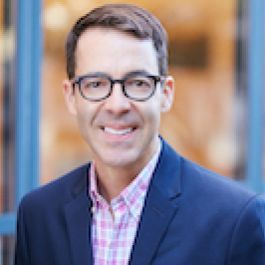
Tom Penque, Chief Talent Officer at Definitive Healthcare
In what ways is your team giving back to the local community right now?
Over the past three weeks, we have been donating our data to branches of the government, universities and organizations to drive publicly accessible solutions as fast as possible to the market. This type of engagement is already a hallmark of our company culture but is particularly important during this time of crisis.
Most recently, we developed a COVID-19 capacity predictor map, a free dashboard that indicates to government and healthcare leaders where, and when, crucial resources like ICU hospital beds and mechanical ventilators should be deployed. We also partnered with one of our long-term clients, Esri, to develop an interactive mapped data service to enable analysis, visualization and tracking of U.S. hospital bed capacity, and potential areas of geographic risk, during the COVID-19 outbreak.
Through a referral from another client, we are providing our ICU bed data to a consulting firm that is helping the Department of Defense deploy the Army Corp of Engineers to build and staff hospitals across the United States based on a combination of need — projected infections — and supply of existing beds. We’ve also been working with GraphiteRx to develop a website to help hospitals obtain emergency supplies from alternative sources, such as foreign medical suppliers, domestic non-medical manufacturers and other large organizations.
How have you adapted, expanded or changed your charitable giving initiatives in light of recent events?
Definitive Healthcare is well-known for its DefinitiveCares community service outreach program, which gives employees paid time off to volunteer at local charities during work hours and rewards participation with additional paid vacation days. In 2019 alone, we contributed 3,404 working hours and $193,500 to 41 charitable organizations.
During this critical time, many charitable organizations are closed to in-person volunteers, so we’ve turned toward supporting virtual opportunities for employees. We are working with our partners that focus on eldercare and education to support them remotely. We are also sharing additional options for virtual volunteering with our employees, including making masks for healthcare workers and creating activity care packages for students or adults who are currently homebound.

Sean Brown, President & CEO at YCharts
In what ways is your team giving back to the local community right now?
When we first learned about the stresses caused by the coronavirus pandemic on our local communities of Chicago and New York City, we started “virtual food drives” for the Greater Chicago Food Depository and The Food Bank for New York City, and set our goal of donating at least 3,000 meals to those in need. Additionally, each employee was given a stipend with part of its intended use being to support local businesses.
How have you adapted, expanded or changed your charitable giving initiatives in light of recent events?
In addition to our “virtual food drives,” we’ve devised a strategy to provide access to our platform to financial professionals who need investment research and client communications tools while working from home. With many investment firms being forced out of the office, it strains their ability to serve their own clients — the millions of individuals like us with savings or nest-eggs that have been adversely affected. By implementing our “work from home support” strategy, we’ve provided hundreds of financial professionals with the tools they need to keep their clients informed and continue to do their jobs successfully.
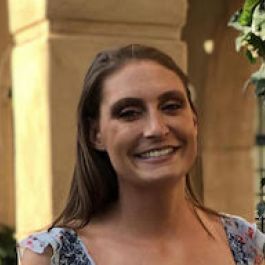
Michaela Rollings, Senior Manager of Brand & Content at Hive
In what ways is your team giving back to the local community right now?
We’re giving back in two ways. First, we’ve got a company-wide giving initiative to One Million Masks. Hive is matching each employee donation dollar for dollar up to $2,500. We’re also about to kick off an initiative called Hive Heroes: The Million Dollar Challenge. Our goal there is to donate one dollar for every person using Hive in 2020, totaling $1 million in donations. The cool component of our giving there is that each Hive user will be able to select the charity they want to donate to from a list of charities, which includes a COVID-19 relief fund. We’re excited to kick off the Hive Heroes Million Dollar Challenge in April 2020.
How have you adapted, expanded or changed your charitable giving initiatives in light of recent events?
Our internal donation and matching program was initiated because, as an NYC-based tech company, we were shocked and saddened by the limited amount of masks provided to healthcare workers in the city. This initiative was one of the ways we could give back to the city and the healthcare workers fighting so valiantly against this virus. Hive Heroes has been in the works for several months, but we’ve pivoted that initiative to include a COVID-19 relief fund in light of recent events.
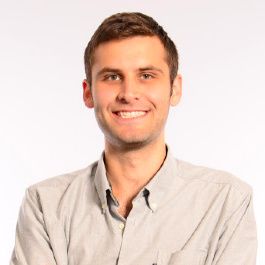
William Chinburg, Head of Talent at Mint House
In what ways is your team giving back to the local community right now?
Coronavirus has impacted nearly every sector of the economy, and as a hotel tech company, our own business has taken a significant hit. At the same time, we recognize that our core product, a tech-enabled boutique hotel, can be put to good use in such chaotic times. For that reason, we’ve made our rooms available at cost to anyone impacted by the virus, including students stranded due to school shutdowns and traveling professionals who are temporarily displaced. Everyone is dealing with a different set of circumstances during this crisis, and our hope is that Mint House can help people weather such an uncertain time in their lives.
How have you adapted, expanded or changed your charitable giving initiatives in light of recent events?
Mint House is a small company, but we believe this contribution will make a difference for people in need. We also know that sooner or later this crisis is going to be over. This current program should provide a framework for future initiatives to come.
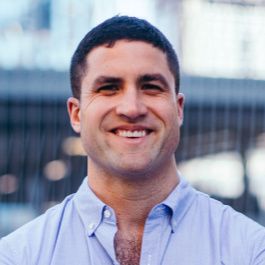
Alfred Johnson, Co-Founder & CEO at Mobilize
In what ways is your team giving back to the local community right now?
This week, we launched a program to provide 501(c)(3) organizations with free access to our platform for their COVID-19 relief work. The program aims to connect the thousands in the community looking for opportunities to make a difference with organizations that need the support. In the first few days alone we’ve got several organizations up and running, including a regional Meals on Wheels that is organizing meal deliveries and telephone outreach to senior citizens and No Vet Alone, which works to combat suicide risk among veterans and first responders.
We’ve also invested considerable time and provided staff support to help the other organizations on our platform transition their organizing and supporter engagement efforts online so as to not lose momentum during this critical time. We’re creating webinars and how-to guides to quickly upskill organizers on working virtually and adapting our product to better serve virtual events.
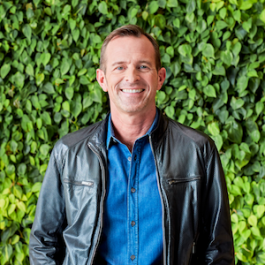
David H. Dancer, Chief Marketing Officer at Inspire
How is your team giving back to the local community right now?
Giving back to the communities we serve is more important now than ever. We are fortunate to be able to partner with our apparel vendor who has converted one of their facilities to produce protective masks. We will be delivering more than 10,000 protective masks to healthcare systems in both Santa Monica and Los Angeles, where we service our customers and where our employees reside.
How have you adapted, expanded or changed your charitable giving initiatives in light of recent events?
We’ve partnered with our friends at Omaze to raise $50,000 to support several organizations that are on the front lines of COVID-19 relief efforts. Our employees and customers want to know how they can contribute, so we are engaging them to spread the word to their networks to maximize our impact.
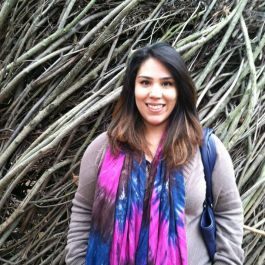
Kristina Paiz, Elastic Cares Program Manager at Elastic
In what ways is your team giving back to the local community right now?
With schools closed and plans disrupted by the COVID-19 pandemic, we can help students figure out what to do next. Many are unsure what this will mean for graduation and what the workforce will be like in the coming months. Career Village is a way for us to connect with students, giving them a sense of stability and reassurance.
To do our part, Elastic Cares set up a volunteering opportunity with Career Village on April 1 to encourage Elasticians to share their knowledge of the tech industry and help train the next generation of tech professionals.
Elastic Cares set up a one-hour, live Q&A session on April 1 that was free for students to access. Actually, it was more than one session — advice was given in several time zones, including in North and South America, the EU and the Asia Pacific regions. Career Village has given our Elasticians the opportunity to connect with students and give them a sense of stability and reassurance in these volatile times.
How have you adapted, expanded or changed your charitable giving initiatives in light of recent events?
We're also releasing free and open on-demand courses over the next few weeks. We know social distancing isn't fun, but it can be a great opportunity to learn new things. So while other people are making a second pass through their Netflix queue, you can build your Elastic Stack, observability and security skills and come out the other side an expert.
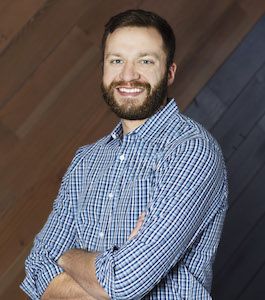
Matthew Polega, Co-Founder and Head of Marketing at Mark43
In what ways is your team giving back to the local community right now?
Local police and first responders are struggling to understand the scope of the pandemic in their communities, and their ranks have been dramatically reduced by exposure to COVID-19. That’s why Mark43 is offering to donate a one-year subscription to our Pandemic Preparedness Package to any interested public safety agency in the U.S., including agencies in New York City.
How have you adapted, expanded or changed your charitable giving initiatives in light of recent events?
To build the Mark43 platform, our team has spent thousands of hours shadowing police officers to create an application that mirrors the way our users think — whether they are dispatchers, call takers or first responders out in the field — and instantly provides all necessary information in an intuitive way during the most complicated and pressure-filled situations.
Having worked closely with over 70 departments across the U.S., we knew that many would be using paper forms to collect exposure information related to the pandemic, which makes any sort of data analysis incredibly difficult. With access to Mark43’s software, departments can easily collect exposure information and compile the data to seamlessly apply for FEMA reimbursement, if needed.

Jason Kingdon, Executive Chairman at Blue Prism
In what ways is your team giving back to the local community right now?
Our corporate philanthropic initiative Blue Prism for Good helps communicate a vision to unleash society’s full potential and inspire the future of work through automation. Our four pillars of focus are charity and fundraising, inclusivity, support for nonprofits and education.
We also launched Women in RPA to celebrate the contributions of women at Blue Prism but also women who are succeeding in robotic process automation and the wider technology industry. We also strive to build a more diverse and inclusive workforce by sponsoring women-centered business events, volunteering in our communities and providing learning opportunities for girls interested in technology careers.
How have you adapted, expanded or changed your charitable giving initiatives in light of recent events?
Now more than ever, we all need to work together as a community to get through the unprecedented global challenges COVID-19 presents. With the goal to alleviate some of the challenges our customers are facing, Blue Prism rolled out the Blue Prism COVID-19 Response Program. We are helping by providing digital workers and process automation resources to organizations impacted by COVID-19 to help them maintain critical business continuity. We have helped organizations in the life sciences, public safety and healthcare arena — people on the front lines of this pandemic — by improving the efficiency of healthcare supply purchasing.
Hospital suppliers are reporting greater shortages as well as increased demand for parts due to the COVID-19 crisis and the strain it is placing on the healthcare industry worldwide. Ascension’s purchasing team has seen an 800-percent increase in the cancellations coming from suppliers in recent weeks. In the face of this emergency, intelligent automation leader Agilify Automation is developing an intelligent process for Ascension, with digital workers from Blue Prism, to cancel the purchase order lines and relieve the manual burden the team is facing today. By streamlining a manual, repetitive process, new digital workers are now able to quickly work through the high volume of cancellations, improving purchasing efficiency, decreasing response time and helping the hospital system better administer to patients.

Bill Moore, CEO at Zello
In what ways is your team giving back to the local community right now?
Zello is a push-to-talk voice messaging service that enables collaboration for workers and communities. We have often emerged as a critical tool in times of crisis for coordinating preparedness and rescue efforts, and the current coronavirus pandemic is no exception.
That’s why we are making our enterprise-grade solution available at no cost to first responders, anywhere in the world. Through our Zello for First Responders program, U.S.-based first responders were previously able to use the professional version of Zello for free. Now we’re opening up the program to first responders around the world. Zello has also mobilized staff to quickly handle the surging demand for the program.
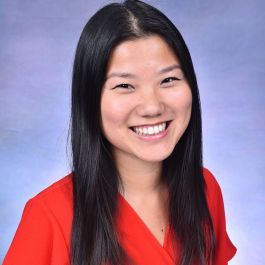
Heather Jin, Global Head of Social Impact at Medallia
In what ways is your team giving back to the local community right now?
Medallia.org is committed to doing our part in relief efforts, and nonprofits are among the most vital yet vulnerable organizations right now. Critical in caring for at-risk populations and helping government agencies understand gaps in services, nonprofits on the front line may be overwhelmed by the increased demand or financially hit due to the volatile economic climate.
We are empowering Medallians to give back to causes they are passionate about through our volunteer time off policy, where every employee has three days per calendar year to volunteer. We have consolidated virtual volunteering opportunities that are of most immediate need. In addition, we will soon be organizing company-wide virtual volunteering events to support those impacted most by COVID-19 — for example, to support and mentor students with career and college advice as schools are closed.
How have you adapted, expanded or changed your charitable giving initiatives in light of recent events?
We are offering Medallia Crowdicity free for six months for all new nonprofit customers. To ensure nonprofits get value immediately, we have pre-packaged the product with COVID-19 specific templates, co-designed with nonprofits, to help organizations crowdsource immediate needs and actionable ideas from their communities on how to prepare the most vulnerable for disasters, engage employees and volunteers remotely and stay financially resilient through crisis. For example, the Alzheimer’s Society is currently using Crowdicity to create a space for people living with dementia and their caretakers to share their unique challenges through COVID-19.

Jared King, CEO & Co-Founder at Invoiced
In what ways is your team giving back to the local community right now?
As a small company, we have limited resources for community giving. But we took a look at the developing situation and wanted to do what we could. What we realized is that for many businesses, their cash situation has changed in the blink of an eye. We thought about the many nonprofits that need to continue playing important roles and for whom effectively managing cash has become both more important and more difficult overnight.
For nonprofits who send invoices for donations or their services, we offer an accounts receivable automation solution that can help them get cash in the door faster and with less effort. So we’re offering our platform to U.S. nonprofits for free until September 16. That gives them up to six months of free use of our system. All they need to do is create a free trial account and email us with their EIN at [email protected]. We’re hopeful that nonprofits take us up on this offer so they’ll be equipped with an important toolset for making it through this extremely challenging time.

Tim Angelillo, Founder & CEO at Sourced Craft Cocktails
In what ways is your team giving back to the local community right now?
In this time of crisis, we wanted to do our part in being of service to three groups: bartenders, who have helped us deliver 3.5 million cocktails over the last four years and currently have no earning potential with bar closures across America, by putting them to work with a livable wage delivering cocktails to homes; consumers, who are stuck inside and now can enjoy a small amount of comfort while responsibly practicing social distancing; and companies and organizations looking for ways to bring their employees together during this period by helping them set up a virtual happy hour. Our Sourced Social Series is a real virtual happy hour that delivers the exact same cocktail to all employees’ homes with an educational live-streamed cocktail demonstration hosted by a local bartender.
How have you adapted, expanded or changed your charitable giving initiatives in light of recent events?
This pivot to an in-home delivery model is an effort to support our bartenders, who are the face of our craft cocktail company. Bartenders earn 20 percent of each order, which provides them a livable wage in each of the five markets we serve — Austin, Dallas, San Francisco, New York City and Los Angeles.
To support our bartender community nationally, Sourced is also donating an additional 5 percent on top of that to the US Bartender's Guild Bartender Emergency Relief Fund. The USBG has always been the backbone of the bartending community, and the bartending community needs the USBG now more than ever. Today we are honored to continue to contribute based on our consumers' support in drinking our craft cocktails at home.

Christina Luconi, Chief People Officer at Rapid7
In what ways is your team giving back to the local community right now?
Each of our offices is supporting our local restaurants by hosting trivia and other contests and providing local restaurant gift cards as prizes. Our company has a great love of music, so we are introducing a Friday night concert series and live-streaming musicians to support them. It provides a great opportunity for our people and their families, roommates or other co-habitants to enjoy the power of music, together.
How have you adapted, expanded or changed your charitable giving initiatives in light of recent events?
We have some well-established relationships with organizations like Hack.Diversity and are continuing to support them — especially now.

Kimberley Storin, Chief Market Officer at RapidDeploy
In what ways is your team giving back to the local community right now?
RapidDeploy is based in both Austin and South Africa. We kicked off our COVID-19-related community efforts by helping the most vulnerable communities impacted by COVID-19 in South Africa. We are doing a RapidDeploy internal challenge to raise money for SAHarvest. For every dollar we collectively raise, RapidDeploy will match that donation up to $5,000. And if we raise more than $5,000 as a team, our CEO will also personally make a $5,000 donation.
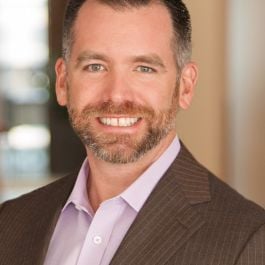
Mark Ralls, President & COO at Invicti Security
In what ways is your team giving back to the local community right now?
Netsparker (Invicti Security) is offering complimentary licenses of our web application security solution to any organization that is involved in the fight against COVID-19. We want to ensure that organizations on the front lines of the response are able to secure and protect their web applications against threats and bad actors who might otherwise disrupt their ability to provide critical services.
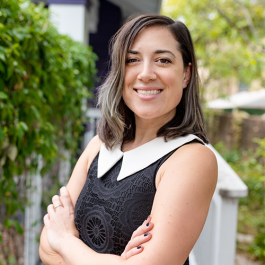
Kelsey Peterson, HR & Recruiting Coordinator at Square Root
In what ways is your team giving back to the local community right now?
Since our quarterly company meeting will now be remote, we donated our event budget to the Central Texas Food Bank to support their increase in need. We're also encouraging our team to redeem their recognition points from Bonusly for donations to Central Texas Food Bank, which we're matching at 100 percent.
How have you adapted, expanded and changed your charitable giving initiatives in light of recent events?
Earlier this year, we expanded our support of diversity and inclusion in tech, by providing sponsorship for 100 girls to attend Girlstart's STEM Conference. With recent events, our funds are now being reallocated to the areas of most need so that Girlstart can still bring STEM education to girls in underserved areas. We're also promoting our matching donation program internally and providing easy ways to support the WHO COVID-19 Response Fund and local nonprofits like Central Texas Food Bank and Austin Pets Alive.
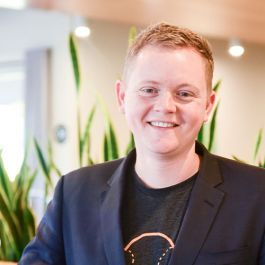
Sam Kroonenburg, CEO at A Cloud Guru
In what ways is your team giving back to the local community right now?
We believe that the times now call for even more accessible and affordable cloud education for those in need, whether they're an individual looking to change their lives or a global enterprise needing the power to strengthen an adaptive workforce. Therefore, we temporarily reduced the price of A Cloud Guru to keep high-quality education within reach during these difficult times.
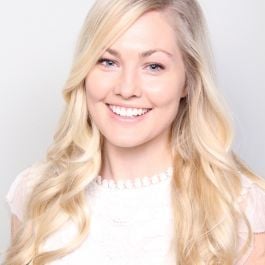
Kelsey Ozar, VP of People at AlertMedia
In what ways is your team giving back to the local community right now?
We are saddened by the losses people are experiencing, including the economic impact we are seeing in our local community, so our team put together a Support Austin initiative. Our initiative includes an emphasis on hiring local candidates within our own community. Given that we are unable to get together for our typical family-style lunches, we have reallocated our in-office food budget to support local Austin area restaurants via weekly Favor credits for our employees to spend at local restaurants.
How have you adapted, expanded or changed your charitable giving initiatives in light of recent events?
Our annual community service program includes monetary donations to six local Austin nonprofits, typically paired with a volunteer service event each quarter. In light of the current environment, we have quadrupled our annual donation budget and added 14 new local nonprofits to our program, including those that are directly helping people deal with this crisis in our community. Ultimately, 20 local nonprofit organizations have been selected to receive a $5,000 donation from AlertMedia.
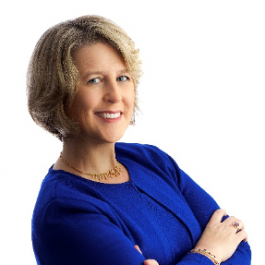
Rachel Hutchisson, VP of Corporate Citizenship & Philanthropy at Blackbaud
In what ways is your team giving back to the local community right now?
At Blackbaud, we believe the world will be a better place when good takes over, and that’s a higher purpose that’s even more critical during these times. In Austin, our employees are volunteering from a distance. Many are writing cards to seniors, who are so isolated right now. We also have many employees donating blood and plasma, which is in short supply and high demand during the pandemic. One of our employees has volunteered to donate blood plasma to the National COVID-19 Convalescent Plasma Project to help seriously ill patients fight the virus. Another one of our employees, who is a regular volunteer with Generation Serve, is supporting their “helping from home” volunteer initiatives, which include creating a “Going on a Bear Hunt” teddy bear scavenger hunt and creating T-shirt bags at home for the Travis County Food Pantries.
How have you adapted, expanded or changed your charitable giving initiatives in light of recent events?
Blackbaud’s mission is to empower and connect people through technology to drive impact for social good, which is especially critical during these times. Throughout all major disasters, Blackbaud is on the front lines with its customers and supporting the social good community globally. Blackbaud made a donation to the World Health Organization and the UN Foundation’s COVID-19 Solidarity Response Fund to put technology in place to fight the spread of the virus. This technology will help track the virus and provide powerful insights into how it is spreading, ensuring patients are getting the care they need, improving the buying and shipping of essential medical supplies and accelerating efforts to develop a vaccine.
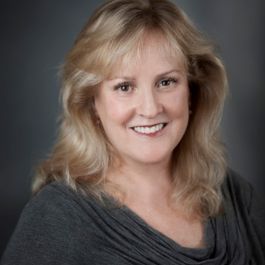
Melissa Mormon, Co-Founder & Chief Experience Officer at Builder Homesite
In what ways is your team giving back to the local community right now?
Since our founding, giving back has always been at the core of who we are — and what we do. In many cases, one of our team members will share a cause with us that’s their personal passion. Often, that becomes a passion for many others here. This had led to many enduring relationships with causes that we continue to support today. Typically, we start by giving our time, expertise and sweat equity — as well as funding.
How have you adapted, expanded or changed your charitable giving initiatives in light of recent events?
In some cases, the company has paused face-to-face giving back at the request of these organizations — and local, state and federal leaders — to help “flatten the curve” of the coronavirus. However, I know each of our many volunteers are eager to resume their hands-on work once we’ve put COVID-19 behind us as a community. Our philosophy of giving back is giving of ourselves and our time through hands-on volunteer work, and as such, we are considering our next partnership with a local organization to help those in need.

Gilles Meiers, Head of Marketing, US, at LumApps
In what ways is your team giving back to the local community right now?
By keeping employees connected, regardless of where they are working, companies that have adopted LumApps are better equipped to cope with such a crisis. LumApps is now offering an out-of-the box Enterprise Communication Portal for free until June 30 to companies that want to streamline internal communication.

Joshua Lee, Co-Founder & CEO at Ardius
In what ways is your team giving back to the local community right now?
Ardius’ key technology was almost made for the CARES Act and Paycheck Protection Program. By integrating with any company’s existing technical and financial systems, our software learns to automatically discover, categorize and qualify tax credit eligible expenses. In the past weeks, our team has responded to an overwhelming number of anxious questions from the startup community, centered on payroll tax holidays, tax credits, deductions and exemptions. As more details are released in the days to come, Ardius wants to make sure that all startups understand the relief that might be available to them and that such specialized knowledge is not reserved for a few highly specialized and expensive CPAs.
With everyone sheltering in, working from home and social distancing, it’s easy to forget about the greater community. Ardius is trying to combat this way of thinking by creating innovative ways to get more involved.
How have you adapted, expanded or changed your charitable giving initiatives in light of recent events?
Although the COVID-19 crisis continues to increase in severity and seriousness, Ardius is leveraging our know-how and making as many resources available and accessible to make a difference for startups in need. Even before the onset of this crisis, Ardius saw its objective far beyond just creating software to automate the R&D tax credit and payroll offset. Our goal and mission has always been to bring growth, cash flow and strategic resources where they’re needed the most.
To this end, Ardius has stepped up to help startups not just thrive and grow but survive. Some of the initiatives Ardius started since the crisis began include waiving all our sign-up fees for any company needing help; utilizing a portion of our fees to purchase back the very services and products that our customers sell; donating those clients’ services and products to other startups that may need it; and deferring our fee until companies receive their payroll tax offset.

Wout Brusselaers, Founder & CEO at Deep 6 AI
In what ways is your team giving back to the local community right now?
We focus on where we can make the biggest impact with our specific resources and expertise. First of all, that means committing to our most local community: our team. Deep 6 AI has worked hard to assemble a world-class team of smart, talented people with a deep passion for driving innovation in healthcare. My goal is to keep that team together and focused on our mission: getting life-saving treatments to patients faster.
How have you expanded, adapted or changed your product offering or strategy in light of recent events?
It is always a privilege to work in healthcare, given the purpose and the impact this lends to our professional and personal lives. So for us, the current crisis is yet another opportunity to double down on our mission and help the efforts to battle the pandemic.
For Deep 6, that means that we immediately expanded our AI-driven clinical trials acceleration software to accurately detect evidence of SARS-CoV-2 across our hospital partners’ rapidly growing patient data. This helps researchers on the front lines of the crisis find patients for the many clinical trials that are required to bring a COVID-19 vaccine to market, as soon as safely possible.
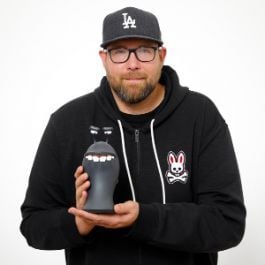
Philip Hickey, EVP of Brand & Marketing at Seriously
In what ways is your team giving back to the local community right now?
In response to the heightened risks of social isolation caused by the COVID-19 pandemic, Seriously is aiming to increase social engagement and boost community resilience through its leading title, Best Fiends.
Best Fiends is enabling family, friends and players from all over the world to connect and support each other remotely by sharing free daily gifts. The daily gifts are sent as virtual gift packages using the in-game Post Office feature. Every time a player claims a gift, the friend who sent it simultaneously receives a gift of their own.
How have you adapted, expanded or changed your charitable giving initiatives in light of recent events?
Best Fiends is also supporting players with awesome new content, like the fan-favorite Easter Egg Hunt where players win free rewards by finding things hidden around the game. There’s also an extra special Easter Egg with a special message — and a digital care package of free gifts.
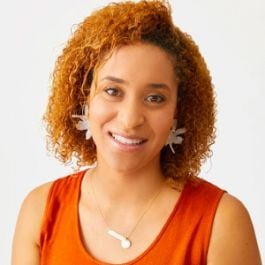
Leslie Burthey, VP of Marketing at FabFitFun, Inc.
How is your team giving back to the local community right now?
We rolled out our Healthcare Heroes initiative on April 2, and doctors and nurses around the country can now sign up to receive their free FabFitFun bundles. As they’re risking their lives and serving us all on the front lines every day, we wanted to show our appreciation with some essentials and a little self care, as they certainly need and deserve it right now.
How have you adapted, expanded or changed your charitable giving initiatives in light of recent events?
Every season between our seasonal box sales we host mid-season e-commerce “edit sales.” Our spring edit sale is taking place right now. As schools began to close and millions of children were sent home without the free school lunch they depend on, we were proud to quickly partner with No Kid Hungry as our spring edit sale charity partner. Our members now have the opportunity to donate directly to the charity through the sale, and FabFitFun will match up to 50,000 of the donations received.

Nir Korczak, Chief Marketing Officer at Playtika
In what ways is your team giving back to the local community right now?
Playtika has taken a dual approach to support people in need during the COVID-19 pandemic. As part of the recently launched #PlayApartTogether campaign to promote the WHO’s health guidelines, Playtika’s studios have rolled out a series of in-game initiatives to encourage players to stay safe through social distancing but also to feel connected with one another through in-game communication.
How have you adapted, expanded or changed your charitable giving initiatives in light of recent events?
With the implementation of Playtika’s company-wide work-from-home policy, we wanted to give back to the wider community. Instead of canceling the provision of catered meal delivery to offices, the company is donating food packages to nonprofits serving vulnerable communities across Eastern Europe in Minsk, Kiev, Dnipro and Vinnitsa, as well as in Israel. Playtika is delivering over 2,500 food packages and hot meals per week across its Eastern European sites, as well as 1,000 food packages per week in Israel.

Tiffany Sayers, Culture Manager at Centerfield
How is your team giving back to the local community right now?
Centerfield recently donated to Frontline Foods, an organization raising funds to feed healthcare workers by partnering with local restaurants. We wanted to show our sincere appreciation for healthcare workers who are on the front line, risking their lives to save others and helping to put an end to this unfortunate pandemic. Our donation will also help our local restaurants that are struggling financially during this time.
We have also given to Meals on Wheels, an organization dedicated to keeping seniors safe and nourished. We want to take care of our elderly who are at high risk from COVID-19. Meals on Wheels replenishes their food and supplies, subsidizes their transportation and enables tech-based efforts to check in on them.
How have you adapted, expanded or changed your charitable giving initiatives in light of recent events?
At Centerfield, one of our favorite ways of giving back to the community is by donating our time and volunteering at local elementary schools by helping with their after-school programs and partnering with awesome organizations that assemble care packages for those in need. Sadly, we’ve had to temporarily suspend our volunteer events that were scheduled for March and April but are eager to pick things back up where we left off once it’s safe for everyone. In addition to donating funds to initiatives that need our support during this challenging time, we’re looking into ways that we can volunteer virtually.
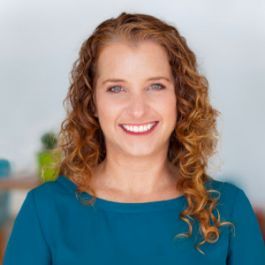
Joanna McFarland, Co-Founder & CEO at HopSkipDrive
How is your team giving back to the local community right now?
HopSkipDrive helps children and other vulnerable populations, such as senior citizens, connect with rigorously vetted CareDrivers who safely get them where they need to go. Right now, school closures are keeping kids at home and CareDrivers with less rides to give. This means we currently have the capacity to help our community during this time of crisis. In some cases, we are expanding our service offerings, such as helping senior citizens. We’re working with a current client to increase our services for seniors, assisting them in picking up food deliveries, buying groceries, picking up prescriptions and more.
While students don’t need transportation to and from school while schools are closed, we’re looking at ways to support them and continue our mission to promote equity. For instance, delivering education technology for distance learning or taking students to open meal programs. We’ve also been focusing on new areas of our business: community support initiatives. We built a ride donation program to let individuals and organizations donate rides to those in need.
How have you adapted, expanded or changed your charitable giving initiatives in light of recent events?
We are partnering with community organizations to donate rides and HopSkipDrive gift cards to children, families and senior citizens in need. Whether the ride is for a meal delivery for a senior, taking a child to pick up free lunch from a school meal program, getting children with IEPs to their appointments or helping health workers with their child transportation needs, we’re all in this together.
We are also committed to supporting HopSkipDrive CareDrivers’ health and safety. We offer free telehealth and diagnostic services through a partnership with Ro and are in constant contact with drivers regarding new partnerships and what the various benefits are out there for them. We are also providing hand sanitizer and disinfectant wipes for CareDrivers as a measure to further protect CareDrivers as well as riders.
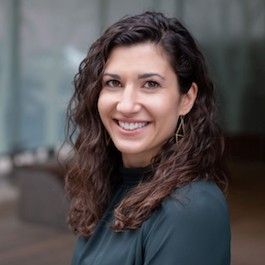
Elyse Neumeier, Chief People Officer at EverQuote
In what ways is your team giving back to the local community right now?
A beloved perk at EverQuote is our Tuesday catered lunches, and since moving to work from home we’ve decided to allocate the money that would have been spent on lunches to both charitable organizations in our community and the local restaurants we typically order from. This budget has gone to organizations like the Greater Boston Food Bank and restaurants like Bon Me and Nu Kitchen. For National Nurses Week, we ordered lunches for nursing units that are connected to the EverQuote team in some way.
We also launched a weekly photo contest dubbed #quarantinecontest. Each week we have a different theme — like best WFH space, most delicious looking dessert or highest step count — and our amazing admin team selects a winner to feature in our weekly virtual town hall. The winner picks a charity for EverQuote to donate to on their behalf: We’ve donated to the Multiple Sclerosis Foundation, American Foundation for Suicide Prevention, SCORE Boston Hockey and more!
How have you adapted, expanded or changed your charitable giving initiatives in light of recent events?
Now more than ever we are working to tie together team engagement with community engagement. We’ve changed charitable giving to be more employee-led and less something that happens behind the scenes. EverQuote is lucky to be in an industry that has been affected by COVID-19 in fewer ways than most, so it’s important to us to use this as an opportunity to ramp up our support for our community.
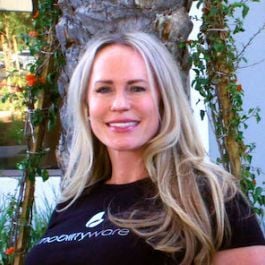
Jill Wilder, Director of Human Resources at MobilityWare
How is your team giving back to the local community right now?
MobilityWare is helping to flatten the curve by participating in the #PlayApartTogether initiative, which promotes healthy physical distancing. We’ve also forged a partnership with Vungle and others in the mobile advertising community to make it easier for our players to make much-needed donations to BuildAid and other well-known entities who are aiding to combat the pandemic.
How have you adapted, expanded or changed your charitable giving initiatives in light of recent events?
Our charitable efforts are normally more local in nature. For example, we’ve partnered with Second Harvest Food Bank and cancer support organizations that are based in Orange County. With the global nature of COVID-19, we have the opportunity to offer our support to the international community. With just these two initiatives, MobilityWare and its partners are able to reach people in need around the world.
As a part of the #PlayApartTogether initiative, MobilityWare will bring players exclusive in-game events, activities and rewards across our portfolio of titles to promote social distancing in an effort to halt the spread of the coronavirus. We are also working with Vungle and other participating ad networks to help support the Make-A-Wish Foundation, SpecialEffect, BuildAid and other charities.

Clay Telfer, Director of Customer Success at Bambee
In what ways is your team giving back to the local community right now?
We’ve started offering 30 minutes of free human resources consultation to any business owner during these difficult times, whether they’re a Bambee client or not. We’ve also made our coronavirus webinars, FAQs and policy templates available for free on our website. Most small business owners have never had to deal with furloughs before — let alone the brand-new regulations from the Families First Act — and we want to alleviate the confusion and help keep people in business in any way we can.

Alexis Kavazanjian, VP of People at PatientPop
How is your team giving back to the local community right now?
During this time of necessary isolation, telehealth is empowering healthcare providers to deliver care — and calm. Our entire team at PatientPop has been working tirelessly to launch PatientPop Telehealth, a virtual healthcare solution that allows providers to continue to care for their patients virtually amid the COVID-19 crisis.

Michael Son, Editor in Chief at Tapas Media
In what ways is your team giving back to the local community right now?
We’ve always believed in utilizing our engineering, business and financial resources to help our creator community thrive. We feel that our diverse community’s stories are incredibly important, especially during these times when so many people are sheltering in place. Their stories have the opportunity to provide entertainment, comfort, escape, catharsis, community and so much more. So for our creator community, we’ll be waiving the fees and commissions associated with our open ad revenue program, along with our internal microtransaction-based crowdsourcing feature starting April 3. Creators will be earning and taking home 100 percent of the revenue from those programs during the month of April.

Marisa Peters, Chief People Officer at VideoAmp
How is your team giving back to the local community right now?
We will be donating 50,000 meals to Feeding America to assist our neighbors in need during this time of uncertainty. Together, we can extend our reach beyond screens and impact our communities in a positive way.
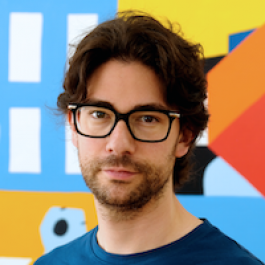
Emmanuel Straschnov, Founder & Co-CEO at Bubble
In what ways is your team giving back to the local community right now?
As the coronavirus crisis unfolded, Bubble introduced a free pricing plan to support anyone building an app that directly helped people affected by COVID-19. Bubble’s mission is to empower people to build their ideas quickly, efficiently and without hiring an expensive team of programmers. Since we began our COVID initiative, we have had dozens of Bubble apps launch and go live, from testing location crowdsourcing apps to small business gift card donation sites. Some of these apps took users less than three days to build. One user launched a platform on March 15 to let people buy gift cards for restaurants that gained national attention and was acquired by USA Today a week later. We pride ourselves on our ability to support people making urgently needed tools, and we are happy to support these new users every step of the way.
How have you adapted, expanded or changed your charitable giving initiatives in light of recent events?
We planned to participate in our first team volunteer event at the end of March, but the current situation has affected that. When everyone was mandated to work remotely and all of our building services were halted, we wanted to make sure their service workers were going to get paid. We deliberately reached out to our janitorial and plant maintenance companies and said, “Although you aren’t able to work, we want to make sure that we can continue to support your workers because we care about their livelihoods and their families.” This is just the right thing to do as we’re in a much better position than many businesses as a funded tech startup.
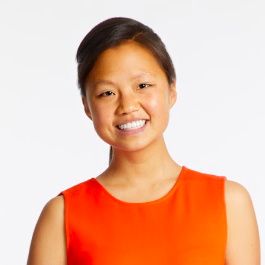
Jennifer Xia Spradling, Co-CEO at FreeWill
In what ways is your team giving back to the local community right now?
Nonprofits are incredibly squeezed right now. They are providing more crucial services but also getting less funding. We talk a lot about the services these nonprofits offer, like free meals, shelter and emergency healthcare aid, but we don’t talk as much about how they have lost many of their funding sources due to social distancing. Galas and events are cancelled, one-on-one meetings with major donors are cancelled and attendance revenues from museums and theaters have evaporated. Since FreeWill provides digital fundraising tools for nonprofits, we realized that the best way we could contribute is to help nonprofits figure out innovative ways to get funding digitally.
How have you adapted, expanded or changed your charitable giving initiatives in light of recent events?
We’ve dedicated around 10 percent of our full-time staff to providing free resources for nonprofits, which include weekly informational webinars, roundtables where people at similar nonprofits can share ideas and support for those applying to the $2 trillion CARES Act stimulus package, which could help save their employees’ jobs.
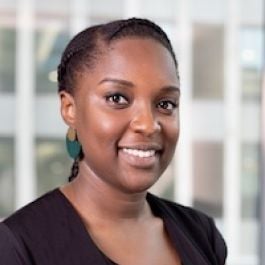
Akinyi Ochieng, Marketing at Nova Credit
In what ways is your team giving back to the local community right now?
Nova Credit helps newcomers to the United States access and build credit. While all Americans are navigating uncertainty in the midst of this pandemic, immigrants face additional stress as many find themselves far from family and friends during a period of self-isolation and lacking information about visa processing. We’re focused on providing resources that shed light on what immigrant communities should expect during this time, which include webinars with leading immigrant attorneys and a regularly updated page containing recent changes made by the United States Citizenship and Immigration Services and Department of Homeland Security in light of the novel coronavirus.
Nearly 37 percent of small restaurant owners are immigrants, and at this time, restaurants are suffering. We’ve decided to raise awareness for restaurants that are still providing takeout and delivery services via social media and are encouraging people to patronize these establishments. We’re also celebrating the various ways immigrants are helping America weather this crisis, highlighting their contributions to healthcare, scientific research, agriculture and more.
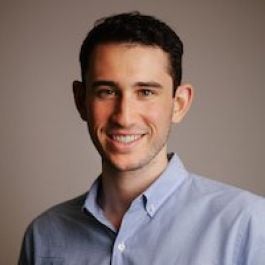
Jason Yanowitz, Co-Founder at BlockWorks Group
In what ways is your team giving back to the local community right now?
We have more than twenty shows in the BlockWorks Group Podcast Network and millions of listeners. There are so many amazing small businesses that need a platform to get in front of an audience and tell their stories. We’re giving away ad slots on several of our podcasts exclusively to small businesses in our community that need to advertise but don’t have the budget for it right now.
How have you adapted, expanded or changed your charitable giving initiatives in light of recent events?
In the past, our charitable initiatives have been separate from our day-to-day work with partners. We’re now thinking about charitable initiatives that bring our community together to really amplify the impact. We’re working with our partners, clients and even competitors to give time and resources to consumers and small businesses in need.

AJ Audino, Director of Strategy & Operations at Particle Health
In what ways is your team giving back to the local community right now?
When the COVID-19 crisis hit the U.S., Particle Health was in a unique position to help. Much like Plaid and Twilio, Particle’s middleware API platform enables healthcare technology companies to access an individual’s digital medical history. We are now offering our services for free to companies that are working on COVID-related efforts, allowing them to screen for a person’s risk factors in a scalable way and take action. So far we’ve been able to onboard a new cohort of innovative companies and do our part to accelerate the global fight against COVID.

Brian Litvack, CEO & Co-Founder at LeagueApps
In what ways is your team giving back to the local community right now?
The abrupt stop to sports had a widespread impact on the 100,000 organizers who make sports happen for our kids. Guided by our core values, we pivoted our platform to provide free support and educational services to help guide these leaders amidst so many business and personal uncertainties. Our virtual events have begun to unify the community in ways we never imagined. Giving back through our platform helps build toward a positive future where kids are back playing sports.
How have you adapted, expanded or changed your charitable giving initiatives in light of recent events?
We built LeagueApps to be mission-focused and service-oriented, particularly through FundPlay, where we provide resources to underserved communities. It’s a key belief that underscores the powerful opportunity we have to ensure every child has access to play. FundPlay will play a leadership role, particularly as our community faces unprecedented challenges, to deliver on our promise of bringing sports to all kids.
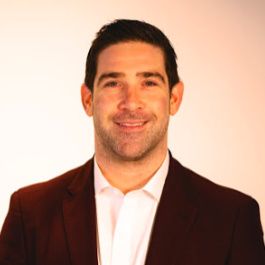
Dan Brillman, Co-Founder & CEO at Unite Us
In what ways is your team giving back to the local community right now?
As a mission-driven technology company that connects social and healthcare providers through coordinated care networks, Unite Us was built to respond to a crisis such as COVID-19. Our team has been in contact with government, health plans, health systems and community leaders across the country to provide communities and public infrastructure immediate and long-term support. In NYC, our team is working hand-in-hand with our community-based partners to expand our existing network’s capacity to ensure that people’s social needs are met as the COVID-19 situation develops.
In addition, we are responding to the crisis with the following adjustments and enhancements to support our local networks: COVID-19 related social needs screenings that identify social needs and quickly connect clients to services, COVID-19 exposure assessments, which will appear in every referral workflow to determine a client’s exposure to COVID-19 across the community, and public-facing websites for individuals in need to better connect them with local resources.
How have you adapted, expanded or changed your charitable giving initiatives in light of recent events?
Unite Us is part of a coalition of NYC healthcare leaders, businesses and community-based organizations supporting a fundraising campaign that will contribute to and empower local organizations during the COVID-19 crisis. The funds raised by the coalition will allow these organizations to continue offering support to the local communities that need their resources now more than ever.
Unite Us is also expanding its network in NYC at no cost and providing pro-bono technology and support. Two local NYC network partners that we are supporting to catalyze this network, called UniteNYC, are AIRnyc and Public Health Solutions, or PHS. AIRnyc provides remote services and virtual home visits to vulnerable families across New York City, helping people refill medications, schedule appointments, access telehealth benefits and connect to food programs, housing services and legal assistance. PHS supports low-income New Yorkers and addresses a wide range of public health issues, including food and nutrition, health insurance, maternal and child health, reproductive and sexual health, tobacco control and HIV/AIDS.

Garrison Gibbons, Head of People at Knotch
In what ways is your team giving back to the local community right now?
We have made donations, as a company, to healthcare workers in locations where we have team members, including the USA, Romania and Argentina. We also just launched with Givz, a charitable donation platform, in an effort to allow every employee to make an individual donation of up to $10 from the company to a COVID-19 related charity of their choice.
How have you adapted, expanded or changed your charitable giving initiatives in light of recent events?
We typically do clothing, can, toy and book drives, but given that our physical office has closed, we have gotten creative with applications like Givz in an effort to continue that concept. My team, along with our internal culture club, is aiming to expand upon our charitable initiatives during this time.

John Sherwin, Co-Founder at Hydrant
In what ways is your team giving back to the local community right now?
We’re donating 5,000 hydration packs to the medical staff at Mount Sinai Hospital in New York — the majority of which have added caffeine per the request of doctors — to keep them on their feet and fresh as they work tirelessly through this pandemic.
How have you adapted, expanded or changed your charitable giving initiatives in light of recent events?
We wanted to make an impact locally here in New York, and so we worked with our connections to find a doctor who could help us coordinate a one-off donation to the team at Mount Sinai. We’ve also been in touch with our customers who are healthcare workers and sent them product directly to keep them hydrated.

Ankur Nagpal, Founder & CEO at Teachable
In what ways is your team giving back to the local community right now?
Teachable is giving away our travel and expense budget in March to CAMBA, a Brooklyn-based nonprofit, and The United Way of Durham to help our local communities in NYC and North Carolina. We want to support the nonprofits in our area by doing what we can to help.
How have you adapted, expanded or changed your charitable giving initiatives in light of recent events?
We rolled out a plan to give Teachable for free to people who are directly working on COVID-19 research. We’re also giving away one to two free months to any creator who has been affected and writes in. In addition, we’ve donated $25,000 to the Creator Fund to help creators who have been adversely affected and are also donating 25 percent of all the revenue we derive from our Reach Summit.

Vivek Sharma, CEO at Movable Ink
In what ways is your team giving back to the local community right now?
NYC is the epicenter of COVID-19 in the United States, and doctors and nurses are already running out of supplies and are either wearing single-use masks multiple times or improvising with anything else they can find. Health workers are superheroes and we should keep them protected as they work long hours to save lives. That’s why Movable Ink is proud to support the One Million Masks initiative with a donation of $10,000. One Million Masks NYC is uniting New York-based startups in the fight against COVID-19 and aims to provide one million masks to healthcare workers on the frontlines.
How have you adapted, expanded or changed your charitable giving initiatives in light of recent events?
Movable Ink has encouraged employees to give back if they’re able to. Our team has an internal list of suggestions for how to support communities in small ways, whether that’s by fostering an animal from a local rescue organization or purchasing a gift card to support a local small business.
In addition to supporting the One Million Masks initiative and our local communities, Movable Ink is offering our clients the ability to share real-time critical messages at no additional cost. Marketers are rushing to produce service updates and other content related to COVID-19. So, we recently launched our Critical Messages app, allowing marketers to change key service messaging in emails even after they’ve been sent.

Sabrina Kieffer, COO at Skillshare
In what ways is your team giving back to the local community right now?
This is an unprecedented time, and we want to be a supportive, encouraging resource. At Skillshare, we have a unique opportunity to help foster creativity, and we’ve been touched by the countless stories of people turning to our classes as a way to help manage stress, practice mindfulness, feel connected and get creative indoors. In an effort to support as many people as possible during this difficult time, Skillshare is giving two months of free access for everyone with .edu, .k12 and .ac.uk email addresses, as well as a limited number of free memberships based on need.
Skillshare is also proud to provide a resource for people to earn passive income by teaching on our platform. To support this, we’ve launched a “Spring Teach Challenge” to help guide them through the process. We are also working with artists in need to help them create content for Skillshare, are providing resources to teachers on how they can support their students and doubling teacher referral bonuses in April. Internally, we’ve also launched a “Social Good Challenge,” in which cross-functional teams across our organization are competing to earn the greatest number of points by completing class projects on Skillshare. The winning team will select a COVID-19 relief charity to which Skillshare will donate.
How have you adapted, expanded or changed your charitable giving initiatives in light of recent events?
In addition to providing free two-month access for students and teachers and free memberships based on need, Skillshare has also partnered with YouTuber and inventor Mark Rober to make a $10,000 donation to No Kid Hungry.
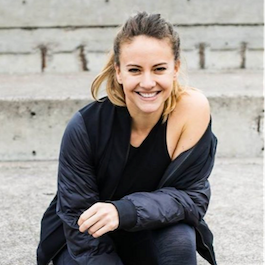
Kate Telge, Community Manager at Tonal
How is your team giving back to the local community right now?
We launched a charitable program in March that is running through the end of April, where we will be donating $1 to the CDC Foundation for every time one our members posts their workout to our Facebook community or on Instagram using the hashtag #TonalGivesBack.
Before the shelter-in-place orders were mandated we also started a new free feature for the members in our Facebook community called The Daily Pause, which is a daily guided meditation from one of our coaches that is intended to help people take the edge off during these stressful times and focus part of their day on physical and mental recovery. We’ve also provided some of our yoga classes for free on our Tonal YouTube channel.
How have you adapted, expanded or changed your charitable giving initiatives in light of recent events?
We had previously done a #TonalGivesBack initiative where we donated the proceeds to KEEN SF, a program that supports disabled youth by providing them with free and fun exercise and fitness programs. As a wellness-focused company, we wanted to be able to support the CDC’s efforts through this challenging time in a way that also provides some additional motivation to our members while allowing them to work out from the safety and comfort of their own home.
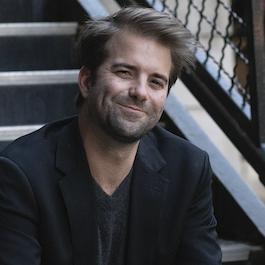
Kyle Swinsky, CEO at AMOpportunities, Inc.
In what ways is your team giving back to the local community right now?
At AMOpportunities, we believe that internationally trained doctors are an answer to the impending physician shortage and, at present, the global pandemic of COVID-19 that is straining the resources and frontline workers of the U.S. healthcare system.
There are 65,000 unlicensed international medical graduates in the country that could lend their support. These are the same doctors that AMOpportunities helps find training at hospitals as their entry point. We are petitioning the U.S. government, healthcare system, and the Federation of State Medical Boards to utilize the knowledge and expertise of these trainees in U.S. hospitals. In just over a week, we have nearly 10,000 signatures, centralizing public opinion.
How have you adapted, expanded or changed your charitable giving initiatives in light of recent events?
We are focusing on tangible initiatives to strengthen the U.S. healthcare workforce. As mentioned above, we are fighting to get U.S.-based IMGs to work in any capacity at U.S. hospitals. These 65,000 trained professionals could have a huge impact on this country’s strained healthcare workforce.
We are also working with our network to import N95 masks to high-density areas in the United States. My co-founder and AMOpportunities’ COO, Ben Bradley, is working with our international partners to source N95 masks and other medical equipment for our hospitals and has already arranged such a delivery to a hospital in Chicago from a distributor in China.
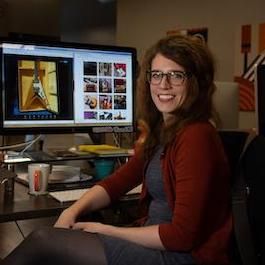
Mallory Nees, Social Media Strategist at Reverb
In what ways is your team giving back to the local community right now?
Based on an idea from one of Reverb’s customer engagement specialists, we created our “Gig From Home” series. We’re working with a diverse lineup of emerging artists, like Chicago’s own FEE LION and Nnamdi Ogbonnaya, to recreate the magic of their concerts from their homes and stream the live performances to Reverb’s 2.1 million social media followers. Fans can tune in and show support by donating directly to the artist or by purchasing merchandise, just like they would at a real show.
How have you adapted, expanded or changed your charitable giving initiatives in light of recent events?
As part of our “Gig From Home” series, artists are getting compensated for their work through a combination of fan donations, merch sales and funds from Reverb. We’re also collaborating with other companies, influencers and brands within the music industry to raise money for causes like the MusiCares COVID-19 Relief Fund and the American Red Cross. Outside of these partnerships, Reverb is working to provide more access to free and affordable music-making tools, like software and video lessons, and creating content that keeps our audience entertained and inspired to stay creative during this time.

Jay Rudman, CEO at TopstepTrader
In what ways is your team giving back to the local community right now?
Over the past two weeks, with help from some of our generous partners, our amazing team has taken time away from their accountable responsibilities to put together a program that will provide a high-level trading education experience. We have packed a lifetime worth of knowledge and skills into a dynamic 30-day free practice trading account, and have made it available to anyone who wishes to take advantage of it.
All of our educational and training resources have been made readily available and easily accessible. Participants will have the opportunity to learn everything from the intricacies of their trading platform to the basic principles and techniques of technical analysis and chart reading. We have also initiated a campaign promising 30 days of “Bite Size Trading” videos filled with useful tips and tools from some of our most trusted educators to help guide them along the way.
How have you adapted, expanded or changed your charitable giving initiatives in light of recent events?
Another step we took to do our part was to reimburse Topstep employees once a week for takeout food orders from their local restaurants and favorite establishments. Most of us have friends and relatives in the hospitality industry, and they need our help now more than ever. I’m happy to say that our team members have embraced this policy with open arms!
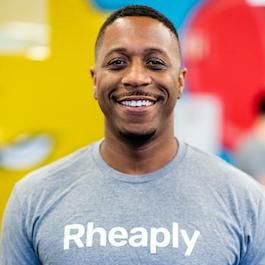
Garry Cooper, CEO & Co-Founder at Rheaply, Inc.
In what ways is your team giving back to the local community right now?
Rheaply has decided to offer an adaptation of its core technology, called an Emergency Resource Exchange (ERx), to the State of Illinois and all its medical facilities for free use during the COVID-19 crisis. With medical facilities currently experiencing shortages in ventilators and other equipment, Rheaply is providing an efficient system for hospitals to procure much-needed assets, and is doing so at no cost.
How have you adapted, expanded or changed your charitable giving initiatives in light of recent events?
Not only has Rheaply created a free version of its platform in light of the COVID-19 crisis, but the platform has been adapted, in collaboration with logistics, academic and public partners, to expedite the process of getting resources where they need to be. The platform also provides the option for medical facilities to donate useful stock to efficiently help in potentially dire circumstances.
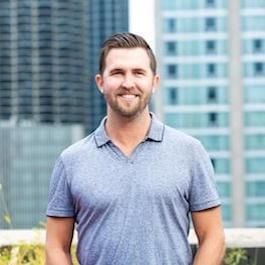
Greg Fenton, CEO & Co-Founder at RedShelf
In what ways is your team giving back to the local community right now?
As the COVID-19 outbreak escalated in recent weeks, countless campuses moved their on-ground courses to an online format and, in many cases, asked students to leave campus altogether. Many of those students couldn’t access previously purchased materials locked in their dorm rooms.
In response, RedShelf launched RedShelf Responds, an initiative providing students no-cost access to digital textbooks for the rest of the semester, thanks to the generosity of our publishing partners. Students from nonprofit, semester-based colleges and universities in the U.S. and Canada are able to access up to seven free ebooks through May 25, 2020, at responds.redshelf.com.
How have you adapted, expanded or changed your charitable giving initiatives in light of recent events?
We have always believed in the enormous impact that digital course materials can have on affordability, access and outcomes in higher education. That impact has become even more pronounced as the entire academic community grapples with COVID-19, especially for those institutions working to quickly move many or all of their courses online.

Kara Kaplan, CEO at Moonrise
In what ways is your team giving back to the local community right now?
Moonrise is taking on the burden for essential businesses in two ways: First, we’re committed to offering the use of our W2 temporary labor pool for free to businesses of any size that are in need of workers. We want to ensure that 100 percent of the cost of the shift goes directly to workers in need. Secondly, we are offering free use of our staffing software to any employer in need of quickly mobilizing a workforce on their own. Our flexible staffing solution includes fully remote onboarding, shift scheduling, touchless and geolocated timekeeping, same-day pay and a proprietary shift matching algorithm — all with one system.
How have you adapted, expanded or changed your charitable giving initiatives in light of recent events?
In light of recent events, we’ve redeployed our engineering resources to build out free solutions for essential businesses that are needed now more than ever.
Our workers are a part of the frontline workforce that are allowing essential businesses to function. By waiving all costs, we’re assisting these businesses in hopes that they are able to stay open and provide much-needed services for the public as well as jobs for Chicago workers.
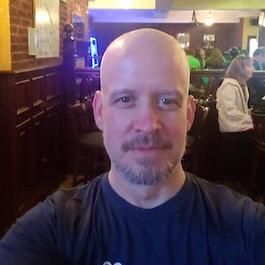
Travis LaMont, Qlik Practice Lead at Analytics8
In what ways is your team giving back to the local community right now?
Along with the governmental restrictions that have been put in place, one of the risks many manufacturing and distribution companies face during this time is ensuring that they have the necessary supplies to maintain operations. While many companies will be doing everything they can to maintain operations and employment for their workers, the reality is that layoffs are likely to happen due to the fact that companies will have to shut down production due to a lack of necessary supplies.
Unfortunately, many companies today do not have the visibility into their supply chain to make informed decisions and contingency plans to avoid such layoffs. We’d like to do our part to help companies avoid any unnecessary layoffs by providing them the visibility into their supply chain through a simplified version of our SpendView application that focuses on supply chain.
How have you adapted, expanded or changed your charitable giving initiatives in light of recent events?
The Supply Chain Analytics application is being offered completely without charge or obligation. Additionally, we are offering to assist you in setting up and configuring your application based on the data that is available to your organization.
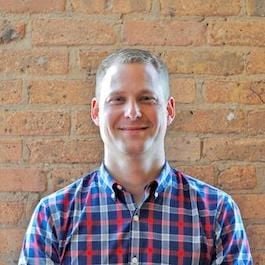
Peter Nachtsheim, Director of Finance at Milyli
In what ways is your team giving back to the local community right now?
We are fortunate to still be operating somewhat normally, but obviously that isn’t true for everyone. Since this pandemic is impacting each of us differently, our leadership team decided to sponsor a $500 donation on behalf of each Milyli employee to an organization or individual impacted by COVID-19.
The idea to open up donations to individuals, not just organizations, came about because we realized everyone has their own giving style and way of responding in a crisis. There are so many people who are impacted by this pandemic, but who may not necessarily be receiving support from any kind of organization right now — public or private. This just felt like an obvious way to broaden our team’s impact immediately.
How have you adapted, expanded or changed your charitable giving initiatives in light of recent events?
The pandemic wasn’t so much a catalyzer of change; it was more so an obvious choice for this year’s initiative. While each year we do like to decorate a tree for the Brookfield Zoo with our families, we typically rotate our other causes annually – usually two, one in winter, one in summer.
We’re fortunate to have the resources and, more importantly, an employee base who willingly steps up with their generosity each time an opportunity to give back presents itself.

Kevin Newman, Systems Team Lead at Peak6
In what ways is your team giving back to the local community right now?
PEAK6 Capital Management is a market liquidity provider. That means we commit our energy, time, talent and capital to provide orderly and transparent stock and option markets. These markets create the liquidity customers and the overall market desperately need, especially now with all the volatility and disruption caused by COVID-19. After our servers finish their day job in the markets, we’re now putting them to work fighting COVID-19 through protein folding.
Folding@Home is a Stanford Medicine project that uses donated compute to discover new protein folding patterns. Protein folding requires a lot of computation, so the Folding@Home project distributes the work across many different computers worldwide. Dividing the work allows each computer to do a bit of the computation. After the computation is done, the resulting protein folding patterns give insight to scientists and doctors so they can better treat the virus.
How have you adapted, expanded or changed your charitable giving initiatives in light of recent events?
We have also streamlined our employee Matching Gifts initiatives so that employees can easily donate to community and national organizations responding to COVID-19.

Mark Theoharous, CEO at Burwood Group
In what ways is your team giving back to the local community right now?
We’ve helped our clients with remote workforce technology for years. Because of this history, we have a lot of knowledge and insight that can guide companies that are struggling with this change. To respond to the current situation, we have expanded our current offerings and added new, free education sessions for anyone in Chicago and beyond.
How have you adapted, expanded or changed your charitable giving initiatives in light of recent events?
Burwood Group is, in part, a managed services provider, helping clients manage their IT environments. In light of the new challenges many organizations are facing, Burwood is offering to provide 24/7, on-demand support to all of our clients, whether they have a current contract or not. In addition, beginning April 2, Burwood will host a free, educational webinar series on the topic of remote workforce support strategy, technology and scaling best practices. We’re hoping to share our expertise to make this transition a little smoother for other companies in Chicagoland and across the country.

Stuart Frankel, CEO at Narrative Science
In what ways is your team giving back to the local community right now?
Narrative Science is giving back in a few different ways. First, we added extra money to every employee’s paycheck and asked that they spend it on local restaurants for take out. Second, we are taking coronavirus data from the WHO and Johns Hopkins and putting them into our data storytelling products. We are giving access to these products to the public for free. Third, we are giving 60-day free trials of our data storytelling software to help teams communicate their business data as they all work remotely during these turbulent times.

David Leeds, CEO at Tango Card
How is your team giving back to the local community right now?
Across our three offices in Seattle, Boise and Omaha, individual team members — who we affectionately call “Tangocardians” — have been giving back to their respective communities by paying for the food of the person behind them in line at the grocery store and drive-thru; distributing handmade drawings and cards from kids to nursing homes with poorer populations and less resources to help; volunteering engineering expertise to Catch22Delivery, which helps Seattle-area restaurants and businesses connect to their customers more easily; donating meals to hospital staff; and hosting a hackathon that resulted in the creation of a COVID-19 resource that could help the community
Meanwhile our company has donated directly to the Seattle Foundation COVID-19 Response Fund. Seattle isn’t our only office, but it’s where our headquarters are located and where we have two-thirds of our team. We’re considering making further contributions. We recognize that most businesses are hurting right now. We also recognize that pain comes in waves as each business and individual is impacted at different times. Restaurants, as we all know, were among the businesses impacted first and hardest. When we gave each of our employees a $50 food delivery/pick-up gift card, one of our main reasons was to support the restaurants in our communities.
Lastly, we’re trying our best to keep everyone employed. As ridiculous as that statement might’ve sounded a month ago, right now we’re focused on keeping jobs in place — which in turn helps our community. When the “stay home, stay healthy” guidelines are relaxed or removed, having a stable job will help the people on our team get their hair cut, buy vinyl, splurge on a cupcake and enjoy live music or a cocktail with friends.
How have you adapted, expanded or changed your charitable giving initiatives in light of recent events?
It’s unusual for Tango Card to donate directly to nonprofit organizations like we did in the case of the COVID-19 Response Fund. Now that we’ve done that, however, we’ll likely continue to do so both now and in the future when challenges face our community.
That said, facilitating not-for-profit contributions has been a core part of our DNA since I founded the company. We’ve facilitated millions of dollars of contributions to organizations, such as Habitat for Humanity, (RED), Johns Hopkins Bloomberg School of Public Health and the CDC Foundation. Additionally, in the last month we’ve worked with dozens of our customers to feature not-for-profits in their reward offerings — giving their employees and customers another way to help.

Daniela Tudor, CEO at WEconnect Health Management
How is your team giving back to the local community right now?
One in 10 Americans struggles with addiction. As a result of COVID-19, and as people are being encouraged or even required to stay home, those in substance use recovery or with mental health issues are unable to attend the support meetings they need in order to be successful. We saw an enormous need to fill that gap and provide people with the support they need — especially during a time of extreme stress and uncertainty. So we’re offering free daily online substance abuse support to those in need.
The response has been beyond our expectations. Since starting the meetings on March 12, more than 15,000 attendees across all 50 states and 10 countries have participated. We’re hopeful that those struggling with addiction, mental health issues or disordered eating will realize that we’re here to help. By leveraging technology and innovation, our mobile app helps people stay accountable to their recovery plan through reminders, incentives and access to peer recovery support specialists that they can connect with via video or the in-app messenger.

Sarah Bird, CEO at Moz
How is your team giving back to the local community right now?
Aside from sharing information on how to support local food banks and local businesses, the team has also been supportive of each other and their families as we quickly moved to a full work-from-home operation in early March. There have been numerous helpful tips for how to entertain and educate different-aged children at home while you juggle work, and how to explain social distancing to your little ones who cannot possibly understand why they can’t leave the house.
Moz also has a large and active community that is not just local to our headquarters but all around the world. Easy-to-access SEO education has always been dear to our mission, and now more than ever businesses and marketers need a hand. That’s why we made the courses in Moz Academy free for our community through May 31. Since launch, over 50,000 people around the world have taken advantage of this free program. Our hope is that marketers can use this time to level up their skills, learn a new discipline or simply channel their energy into a needed distraction.
How have you adapted, expanded or changed your charitable giving initiatives in light of recent events?
Moz already supports the community by matching Mozzers’ charitable contributions at 100 percent and by providing additional financial and hands-on support within our local communities. On an unrelated note, Moz also offers a special benefit to staff which we call Paid PAID Vacation, which is $3,000 cash each year to use on vacation expenses. Since we’re all restricted from taking vacation right now, we extended our policy so that it could be used for charitable contributions. We know Mozzers are financially giving more than ever to support our local community, and we want to help them do that.
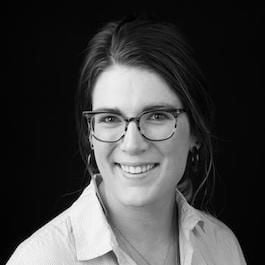
Olivia Yates O’Donnell, Marketing Director at dumpling
How is your team giving back to the local community right now?
Dumpling’s first response to the COVID-19 pandemic was to ensure all business owners feel safe and supported. One step we've taken is providing $15 per business owner to purchase items such as hand sanitizer, Lysol wipes and other supplies to ensure they are able to shop safely.
Next, we found that many business owners were making changes to better serve vulnerable populations in their communities by reducing or eliminating delivery fees, so we started the Dumpling Community Support program to give $10 back to business owners for every order serving vulnerable populations. This ensures they don’t have to sacrifice their income for better serving their communities.
Finally, we recognized that there was a lack of much-needed education about how to stay safe while grocery shopping during COVID-19, so we brought in food safety specialist Professor Ben Chapman to educate shoppers on best practices.
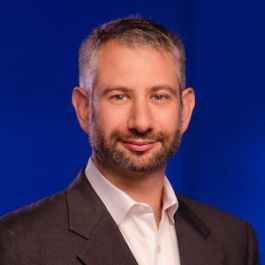
Jake Milstein, CMO at CI Security
How is your team giving back to the local community right now?
CI Security defends healthcare and critical infrastructure organizations from cyberattacks. Unfortunately, criminals are taking advantage of the pandemic to launch new attacks, and we are offering cyber defense services to organizations on the front lines of the coronavirus crisis for free right now. We want to thank the folks who work at healthcare organizations and local governments around the Seattle area and are honored to be able to help.
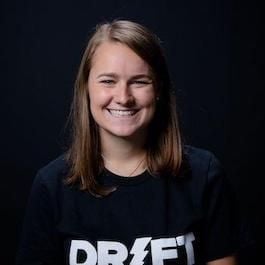
Kaitlyn Martins, Employment Brand Manager at Drift
In what ways is your team giving back to the local community right now?
We have made membership to our community sales and marketing learning platform, Drift Insider Plus, only $20 — it’s normally $100 — so that people can still network and learn from home. That $20 from each registration will be donated to Feeding America. We also created Drift coloring pages for people with little ones at home, which can be downloaded for free. In addition, we put together a guide about how to make the most of video capture, since everyone is on Zoom these days.
How have you adapted, expanded or changed your charitable giving initiatives in light of recent events?
Our newly formed partnership with Feeding America certainly expands our giving initiatives, which we feel are more important than ever right now. One of Drift’s leadership principles is “be a curious learning machine.” This discounted access to Insider Plus allows anyone who is interested in sales and marketing to continue to expand their network and learn more about the industry from the comfort of their home and for a fraction of the cost, with that entire membership fee going straight back into the community.
Also, Drift Video Pro is now free for all teachers, students and nonprofit employees. Over the last few weeks, we have seen a sharp uptick in teachers, tutors and educators using Drift Video to help their students transition to a new distance learning paradigm. We built Drift Video for businesses, but the ability to privately share videos, know who has watched which ones and be able to message the teacher while watching the video has proven a perfect match for schools, too.

Reza Zanjani, CEO at Mixfit
In what ways is your team giving back to the local community right now?
Meaningful contribution to people’s lives is at the heart of innovation. Our team and company have been developing the second-generation of Mixfit’s real-time, personalized nutrition drink system that delivers the precise amount of nutrients a person needs based on their own health and unique lifestyle. While our plans were to launch in summer 2020, our teams in Boston, Seattle and Lausanne, Switzerland, have been working tirelessly with our manufacturers and partners to expedite a limited production batch.
We’ll be donating up to 10,000 personalized nutrition drinks to our communities, frontline responders providing care and the essential service providers who support us all during these challenging times, which include journalists and law enforcement. We encourage businesses and institutions to reach out so we can provide them with support as the stock becomes available.
How have you adapted, expanded or changed your charitable giving initiatives in light of recent events?
We are focused on the belief that every person deserves to be healthy so they can be everything they want to be. The recent events completely shifted our charitable plans and we’re prioritizing our 10,000 drink giveaway in support of our communities. Everybody deserves complete health, and we have to prioritize helping our communities now in what ways we can as a small company and know that our combined communal efforts can make a big impact.

Bill Bither, CEO at MachineMetrics, Inc.
In what ways is your team giving back to the local community right now?
At MachineMetrics, many of our customers, local and otherwise, are manufacturers on the frontlines delivering life-saving medical devices and device components. As a company, we’ve shifted our focus to helping these heroes keep their plants running to produce solutions during this unprecedented situation. Our first action was to launch a program to provide remote monitoring capabilities to support remote work and social distancing for manufacturers contributing to the fight against COVID-19. The program includes free access to the MachineMetrics platform, our remote factory applications and consulting services for any manufacturer involved with the production of ventilator parts, test equipment, protective equipment or any COVID-19 related manufacturing support. By enabling mobile workers, industrial companies are better able to ensure the safety of their workers while continuing to serve the community.
How have you adapted, expanded or changed your charitable giving initiatives in light of recent events?
Our data science team has shifted their efforts to reporting on the impact of coronavirus on the manufacturing community. We’ve been making this information regularly available on our blog and through social media with the goal of providing as much insight as we can to our customers and the manufacturing community as a whole. We’ve also begun a free live panel series with the goal of providing manufacturers with the information they need to make the best decisions possible in the coming months. Now more than ever these capabilities are particularly useful as many are forced to work away from their factory floors. It’s our duty and an honor to help these manufacturers in this time of need.
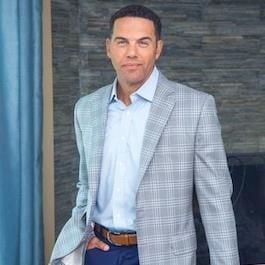
Steve Pemberton, Chief HR Officer at Workhuman
In what ways is your team giving back to the local community right now?
Life and work don’t stop just because we’re in the midst of a pandemic. What happens to the birthday card that gets passed around the office? The collections to pitch in for a baby shower gift? The impromptu chat about the puppy your colleague is thinking about adopting? Life Events allows companies to crowdsource these moments of celebration and illuminate all the good that’s happening in our lives. As a leading provider of social recognition programs, what we do matters now more than ever. That’s why we’ve decided to offer special editions of our Life Events and Conversations products free until March 2021 to help mitigate isolation during the COVID-19 disruption.
And even though I’m unable to meet with my direct reports in person for the foreseeable future, work hasn’t stopped. Managers can use our Conversations experience to make sure they connect one on one with their direct reports on a regular basis to not only check in on projects but also to provide much-needed support.
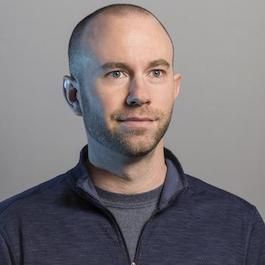
Nick Sheryka, Principal Engineer, Flight Test, at Boom Supersonic
In what ways is your team giving back to the local community right now?
At Boom Supersonic, limited employees are leveraging 3D printers in the manufacturing facility to print headband pieces for face shields. Our partner, Stratasys, donated printing materials to help Boom make the face shields.
In addition to these companies coming together, Boom’s extended network has also started to print face shields on their 3D printers at home and sew face masks for the cause. Last week, Make4Covid was introduced to help further coordinate the design, manufacture and testing of the protective equipment made by the Boom community, while working with medical professionals and experts to arrange the safe drop-off of these supplies to healthcare professionals and hospitals who need them most.

Miguel Adao, Head of Field Marketing North America at Freshworks
In what ways is your team giving back to the local community right now?
We are seeing two different challenges right now: business impact and community impact. We’re offering a Freshchat/Freshcaller bundle free of charge for six months for small businesses of 50 employees or less, across all industries — an efficient solution for remote collaboration to help ensure business continuity.
We’re also offering a free COVID-19 Freshchat solution for all hospitals, clinics, and more in the United States, regardless of company size, for at least the next three months, which includes an automated chatbot, with FAQs and a first-response flow.
How have you adapted, expanded or changed your charitable giving initiatives in light of recent events?
We are donating $20 to the American Red Cross for their efforts around COVID-19 for every Freshworks customer who completes a short customer survey around their 2020 business plans. We are also sending up to $50 in UberEats vouchers to hundreds of Freshworks contacts this week, which will help feed their families while they are staying put at home, and will also help support local restaurants and eateries in their respective communities.
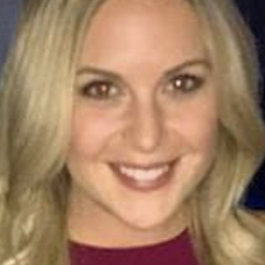
Sydney Artt, Senior Recruiter at Sumo Logic
In what ways is your team giving back to the local community right now?
With so much of the workforce being suddenly pushed to work remote, Sumo Logic is offering a free work-from-home solution of our platform and partner ecosystem. We’ve also offered these solutions to schools and higher education institutions globally to provide children with crucial learning to maintain a positive outlook, keep them safe during the coronavirus pandemic and allow teachers to keep doing what they love — teaching.
We’ve also joined forces with other tech companies and have sponsored “All the Talks” 24-hour virtual fundraising event to help raise money and awareness for those in need during this critical time.
We are donating to Denver Delivered to bring meals to low-income homes and the elderly, the Denver Small Business Fund to help local businesses get back on their feet, and are giving money to local healthcare organizations to provide resources and supplies. We’ve also been sending hand-written cards to healthcare workers to express gratitude.
How have you adapted, expanded or changed your charitable giving initiatives in light of recent events?
In light of local businesses in Denver shutting down, families losing their income and potentially the ability to provide, and healthcare workers putting themselves at risk, we have expanded our charitable approach from being more education and youth related to also including those who have been directly impacted by these more recent economic and health changes.
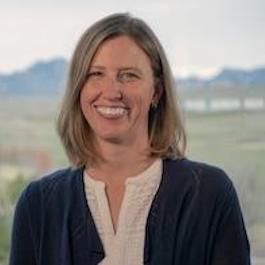
Jamie Valpatic, SVP of Human Resources at talentReef
In what ways is your team giving back to the local community right now?
Over these last few weeks, the team came together to raise donations to aid our local community and pay it forward. We’ve made financial donations to the Denver Rescue Mission and the Food Bank of the Rockies, as well as local restaurants and businesses. In addition to financial donations, our employees have been proactive patrons at our local clients’ businesses in an effort to support them through these unprecedented times.
We look forward to the reopening of our local restaurants and businesses and will be offering a 60-day trial of our recruitment marketing and applicant tracking modules to help affected organizations across the country either meet their current hiring needs or ramp up after the crisis is over, enabling them to re-hire quickly.
How have you adapted, expanded or changed your charitable giving initiatives in light of recent events?
We are fully focused on helping our local community through this crisis. Our hearts go out to our clients — many of whom are in the service and restaurant industries — and local businesses in need. In response, we’ve greatly expanded our charitable giving initiatives to help businesses in our community that have been impacted by the crisis.
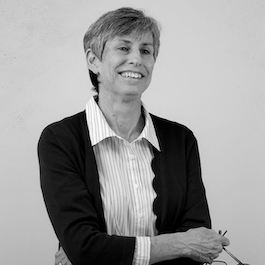
Susan Mitnick, Chief People Officer at Pax8
In what ways is your team giving back to the local community right now?
We are currently running a fundraiser that started last Thursday and will run until April 10. At this point, we have raised $3,000, which will be allocated across the following organizations: Food Bank of the Rockies, Sacred Heart House, Food for Thought and No Kid Hungry.
How have you adapted, expanded or changed your charitable giving initiatives in light of recent events?
Pax8’s community involvement strategy for 2020 has been to offer volunteer opportunities for our employees each month so they could take time from work to give back to others alongside their co-workers from across the company. We had our employees vote to select the three organizations that we would partner with for the year, participating in an event with each of them on a quarterly basis.
With social distancing as the current norm, we have moved to fundraising efforts for a handful of nonprofits focused on providing meals for individuals and families that are struggling financially.
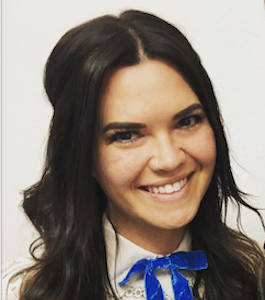
Jessica Lokes, HR Programs Manager at Xactly Corp
In what ways is your team giving back to the local community right now?
While exercising proper social distancing, and prior to the stay at home order, the Xactly Denver team was able to support our friend Jesus and Milagro Burritos by purchasing over 670-plus burritos.
How have you adapted, expanded or changed your charitable giving initiatives in light of recent events?
XactlyOne and our philanthropic organization is a huge part of our culture. Working remotely doesn’t change that. Quarterly, our employees have the opportunity to fill out a survey to suggest areas in the community to support. The survey is reviewed by senior staff and the XactlyOne board works with the Xactlian who referred the organization. All employees also have the option to auto-deduct donations from their paycheck to support our global Xactly community. One of the most impactful ways we are helping during this time is by volunteering, virtually, with the elderly through Love for the Elderly and those in isolation through Mon Ami Volunteer Phone Bank.
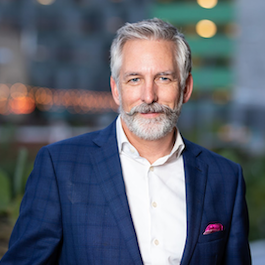
Michael Simpson, CEO at PAIRIN
In what ways is your team giving back to the local community right now?
PAIRIN had previously ordered 150 branded hand sanitizers to use as promotional items at conferences and events this spring. After the COVID-19 crisis hit, most of our conferences were canceled and a national-wide shortage of hand sanitizer surfaced, making the decision to donate them instead a very easy one. We were able to donate them to the first responders at the North Metro Fire Department.
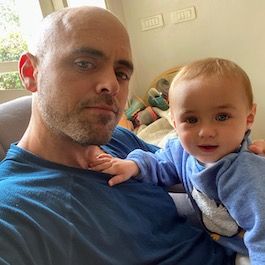
Lior Sion, Founder and CTO at Bringg
In what ways is your team giving back to the local community right now?
In practicing social distancing, people are becoming dependent on deliveries and pickups. While we help our biggest customers do those things already, there is a huge gap: Senior citizens are left isolated and are sometimes unable to go out and pick up groceries and deliveries. We see communities solving this problem in two ways, and we help with both for free.
The first way is by encouraging local businesses to do deliveries and pickups using technology. We released BringgNOW as a free product for them. We also see more and more groups of volunteers delivering food to those who need help. These are amazing initiatives that we are really excited about, but they are also a logistical nightmare. We created a pro bono plan that helps more than five cities make deliveries using our tools. The last initiative we see is helping small farmers or manufacturers get to their customers directly.
Our team has stepped up, and we are helping everyone who approaches us for as long as we have the capacity to do so.
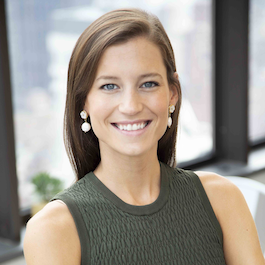
Devon Siegel, VP of People at Reonomy
In what ways is your team giving back to the local community right now?
At Reonomy, the communal meal is an integral part of our culture. Regular meals are sourced daily from local businesses across the city and serve as a centerpiece for reonomists to congregate, share ideas and enjoy each other’s company. Our team recognizes how important local businesses — particularly restaurants in our neighborhoods — are to the fabric of our work culture and would like to ensure their livelihood beyond this crisis.
Since transitioning to remote work, we have ensured that our team experiences a sense of consistency and have continued to offer opportunities to remotely join together over meals. During this period, employees are offered a daily stipend to put toward food and are encouraged to patronize local businesses. Virtual lunch and learns and company happy hours have also become a mainstay, mimicking the in-office experience. In addition to the stipend, we have committed a sizable donation to the NYC COVID-19 Emergency Relief Fund, offering support to our community of local businesses, healthcare workers and vulnerable New Yorkers.
How have you adapted, expanded or changed your charitable giving initiatives in light of recent events?
It definitely changes your perspective when a crisis is going on in your own backyard. In the past, we have welcomed charitable giving initiatives driven by our employees and facilitated by our people team. This crisis has sparked an interest in formalizing our corporate social responsibility function and proactively seeking out relevant initiatives. We’re hoping that this initiative will better position us to react amidst future crises and will ingrain philanthropy into our footprint.

Lori Shao, Founder and CEO AT Finli
In what ways is your team giving back to the local community right now?
Our mission at Finli is to help neighborhood schools and studios manage their businesses, starting with our first product, an app that digitizes and simplifies the payment process. This product has been critical to many of our clients who have had to switch from offering classes in person to online. Talking to our clients, we realized that there was more we could do to advance our mission.
Being able to accept payments digitally was one thing, but having customers willing to take classes online was another. As a fintech company well connected in the business community, we decided to focus on this problem. In response, we launched #standupforsmallbusiness, a platform connecting these neighborhood studios and schools with corporations and employees looking to support small businesses or learn a new skill virtually.
This is a win-win in these tough times: the schools and studios get a much-needed revenue boost from new customers and corporations can offer classes to their work from home employees looking for connection, all while giving back to the community in a real and direct way. The messages of support and gratitude have been incredible.
We’ve opened up our classes beyond our client base to include any neighborhood school or studio that could use the revenue. Our classes range from “learn to draw your fruit bowl” to “tai chi it up in your living room” and “drumboxing 101.” We’ve always been a mission-driven company and we are grateful to be able to help during this time of need.

Andrei Utkin, Chief Marketing Officer at Pangea Money Transfer
In what ways is your team giving back to the local community right now?
Pangea Money Transfer has partnered with Cebuana Lhuillier, a major Filipino financial services company, to build Quikz, a money transfer app allowing easy remittances from the U.S. to the Philippines. When the COVID-19 crisis hit, impacting customers in both countries, Pangea and Cebuana decided to help those who are making the largest impact fighting the disease: healthcare workers.
We launched Quikz Heroes, a campaign allowing any healthcare worker in the United States to send money to the Philippines fee-free for a 30-day period between April 13 and May 13. We recognize that a significant share of the the Filipino community in the U.S. is employed in the healthcare industry, and many of these professionals send money back to the Philippines on a regular basis to support their family, so this promotion is especially relevant for Quikz customers
How have you adapted, expanded or changed your charitable giving initiatives in light of recent events?
To make the promotion easy and seamless to use, we have omitted the stringent verification process we would normally require for such a campaign. To prove their healthcare worker status, a customer simply needs to email a selfie or photo taken in their work environment —hospital, clinic, long-term care facility — to [email protected]. Our customer experience team takes care of the rest, and the fee waiver is automatically applied during the next five transfers.

Keith Horton, General Manager and General Counsel at Camelot Illinois
In what ways is your team giving back to the local community right now?
In response to the COVID-19 pandemic, Camelot Illinois is donating $15,000 to Cradles to Crayons, or C2C, in support of its efforts to provide emergency essential items for children facing barriers to adequate resources throughout Chicagoland. Children from birth through age 12 who are experiencing homelessness or low-income situations depend on Cradles to Crayons year-round for the essential items they need to thrive — at home, at school and at play.
With the economic instability caused by the COVID-19 pandemic, families and youth experiencing poverty are relying on Cradles to Crayons’ services and resources now more than ever. In response, C2C has created a COVID-19 emergency essentials fund. Since implementing the fund four weeks ago, Cradles to Crayons has distributed more than 68,000 diapers, 3,300 hygiene kits, 2,000 books, 900 school supply kits and 600 coats to 9,270 children, but the need is still ongoing.
Giving back to our community, especially during a crisis, is of the utmost importance to Camelot Illinois. Cradles to Crayons does amazing work and we are proud to align ourselves with an organization that shares our values.

Chelsea Glosser, Social Media and Community Manager at ReviewTrackers
In what ways is your team giving back to the local community right now?
While we know all industries are feeling the effects of this pandemic, some of those who are hurting the most are our local restaurants. In this time of isolation, reviews are an easy tool to help bolster the success of these establishments for now and the future. We launched a pay-it-forward-focused campaign with the hashtag #SayItForward on social media to encourage individuals to leave three reviews for local restaurants that have made them feel good during this time and to tag three other friends or colleagues to do the same.
Research already shows online reviews influence the dining decisions of 94 percent of U.S. consumers. With every #SayItForward review, our goal is to show continued support to restaurants while encouraging others to do the same. We hope to help our favorite restaurants stay afloat during these turbulent times so that we can visit them again when this crisis is over.
How have you adapted, expanded or changed your charitable giving initiatives in light of recent events?
Our tool is really focused on reputation and crisis management — something businesses of all sizes need support with during this pandemic. We’ve created a suite of free resources for both customers as well as other businesses who could use support navigating disruption, which includes everything from webinars and guides to tool kits and checklists.
We know that many businesses don’t have the resources they once did, so part of how we’re giving back is by providing a 60-day trial of our product and offering a month of our service to some of our customers for free.

Kurt Rathmann, CEO at ScaleFactor
In what ways is your team giving back to the local community right now?
We can’t support local businesses in-person right now, but we can utilize our talents and money to support them from afar. By doing things like building a calculator to help small and medium-sized businesses apply for the government-backed loans and partnering with local businesses to provide our team members access to at-home workouts, we are ensuring the economies we all depend on have our support.
Throughout this time we are also continuing to hire new employees and encouraging all of our team members to shop locally when they can.
How have you adapted, expanded or changed your charitable giving initiatives in light of recent events?
We are doing everything we can to help small businesses navigate this crisis. Our customers are small and medium-sized businesses, and this crisis is personal for them. So it’s personal for us, too. We are devoted to developing resources for all small business owners to use, from how to handle their gift card sales to how to apply for loans. We are here to help them overcome every single hurdle.
We have always been ready to take on the challenge of remote working, but I’m sure for most businesses “remote giving” is a subject we just weren’t prepared to tackle. Our people team is hard at work developing more ways for us to safely handle this delicate task as stewards of East Austin.

